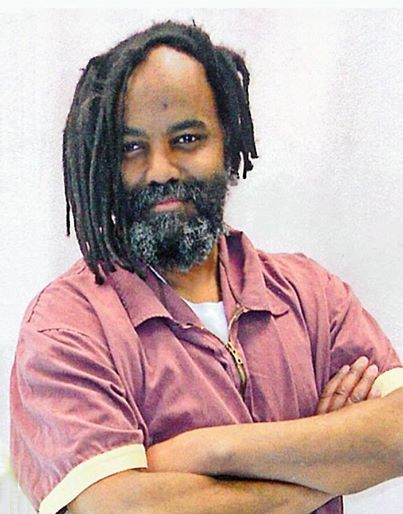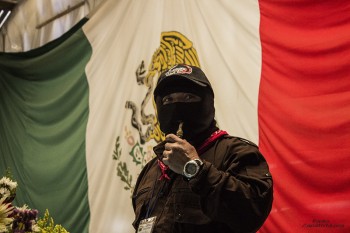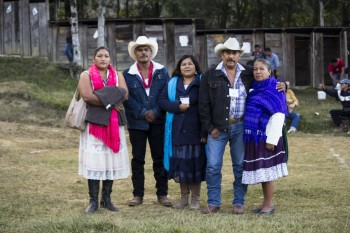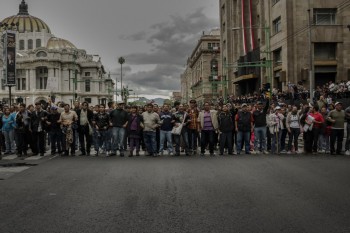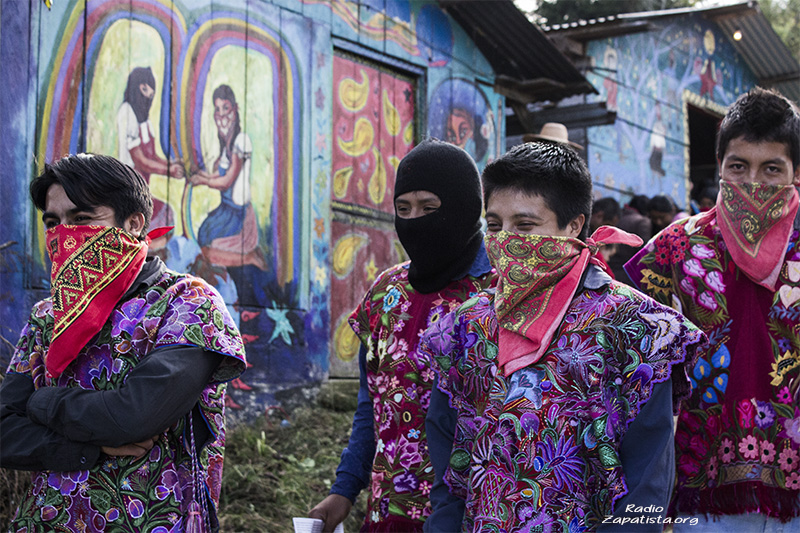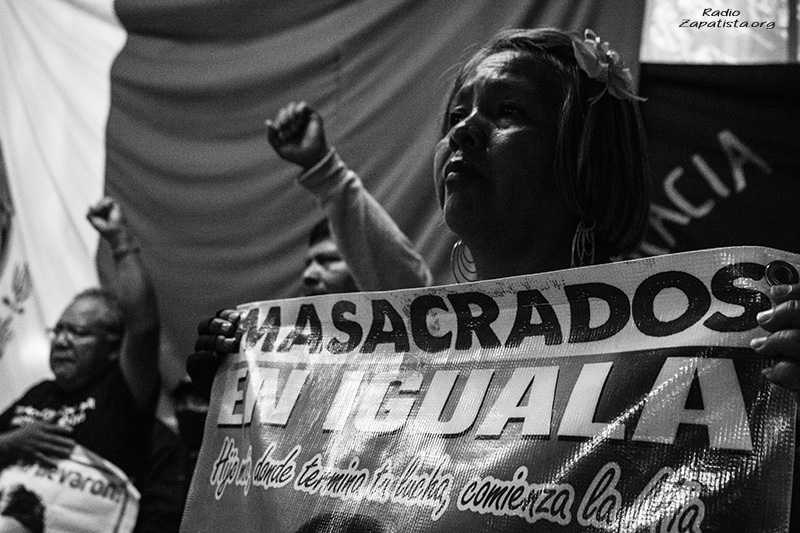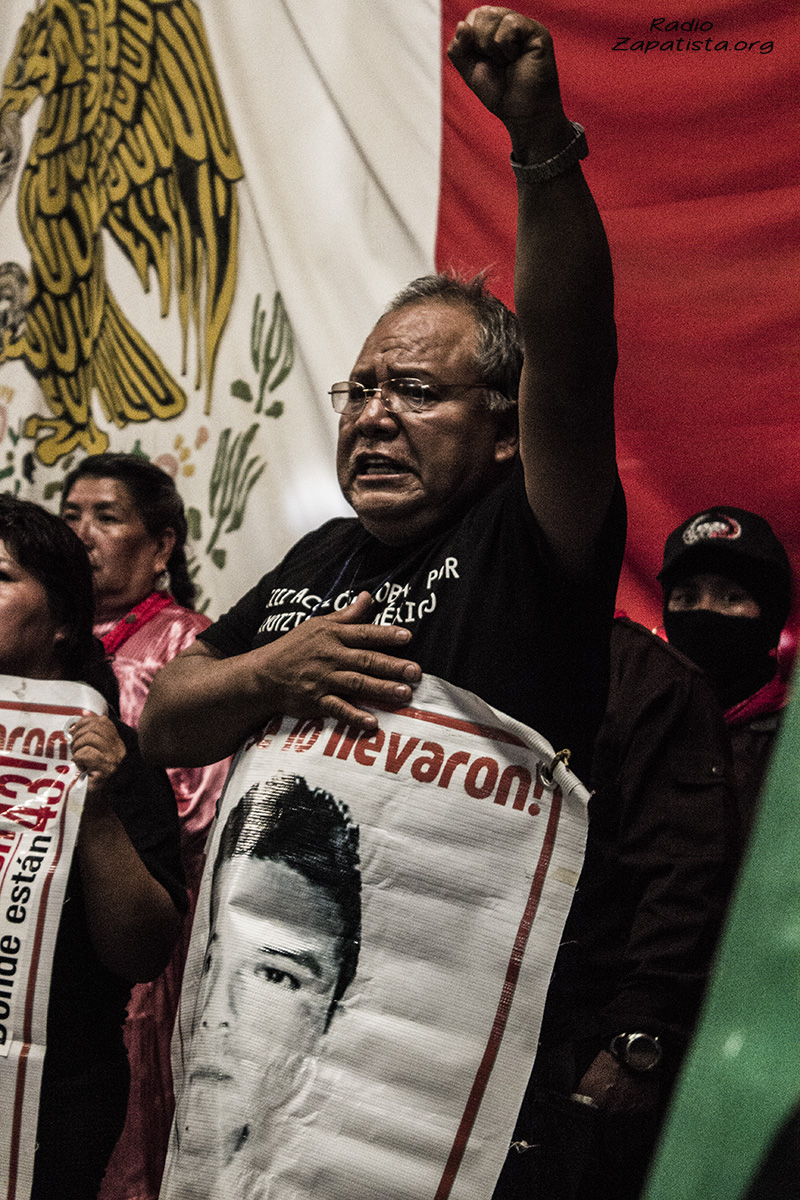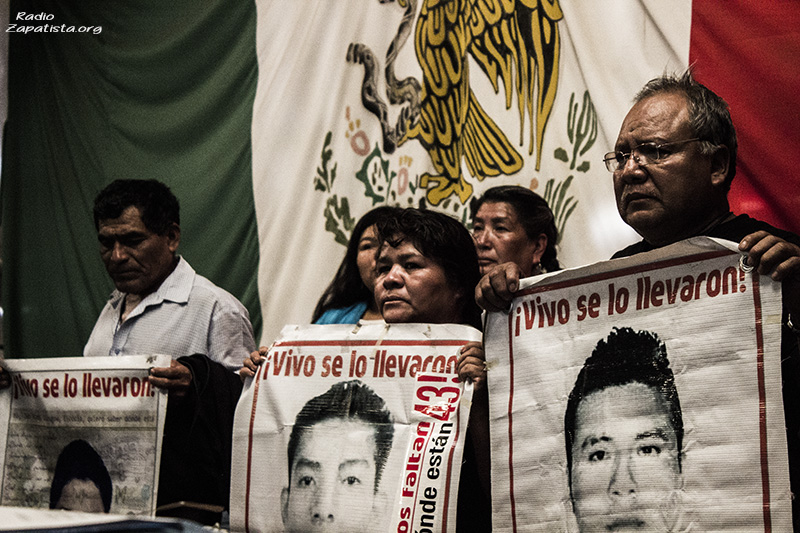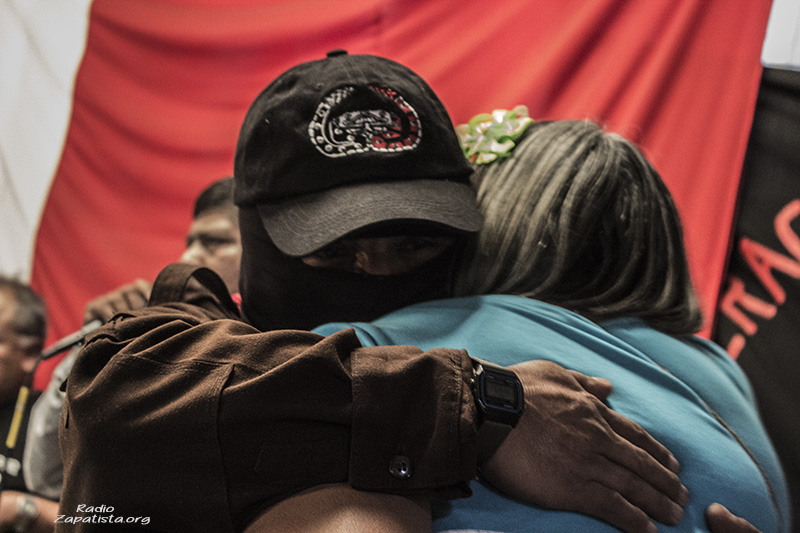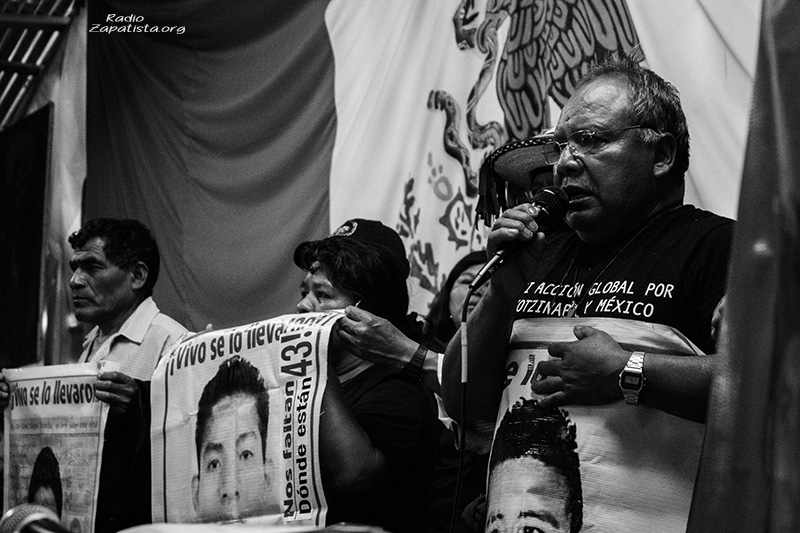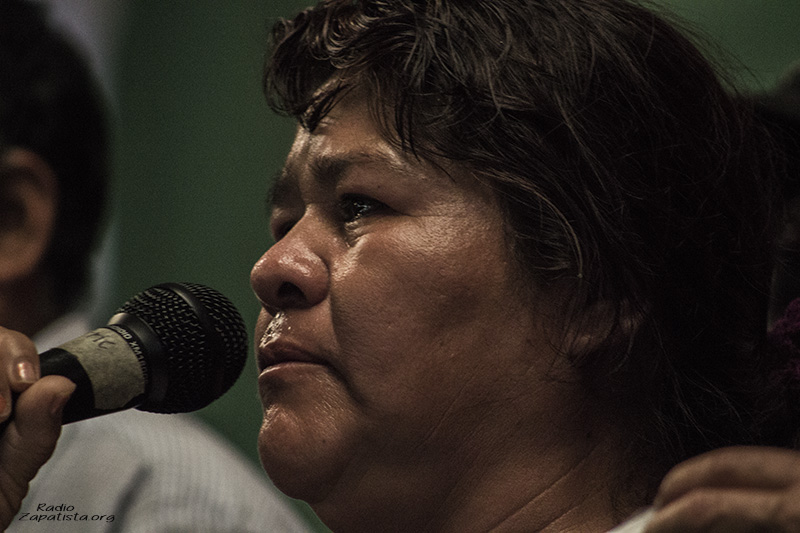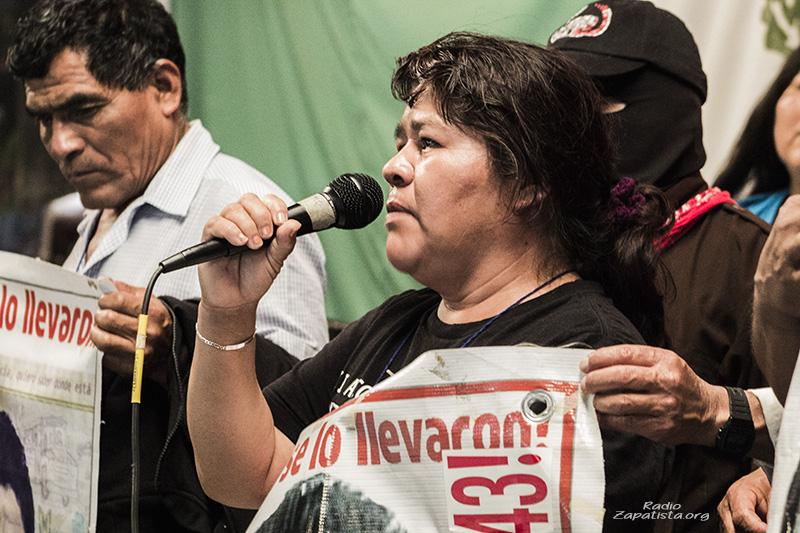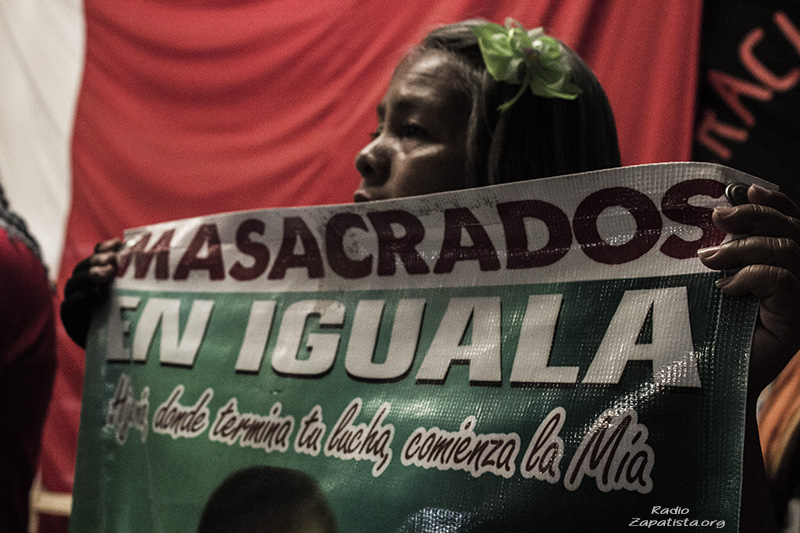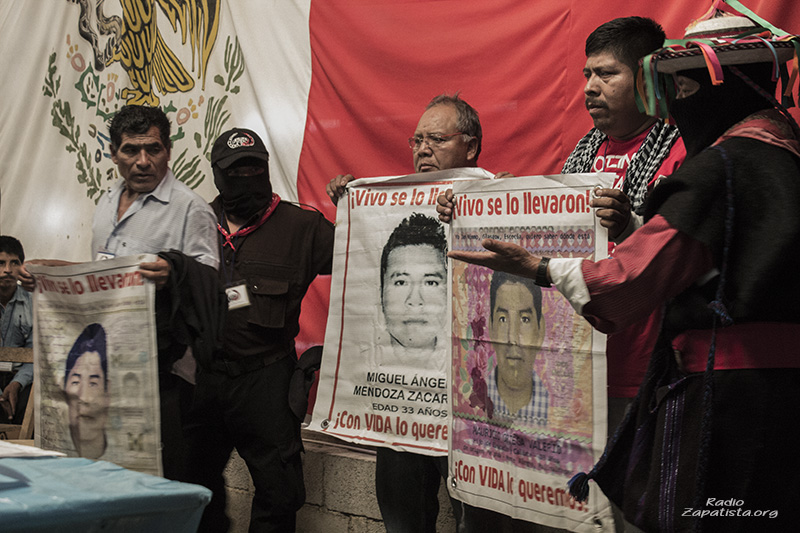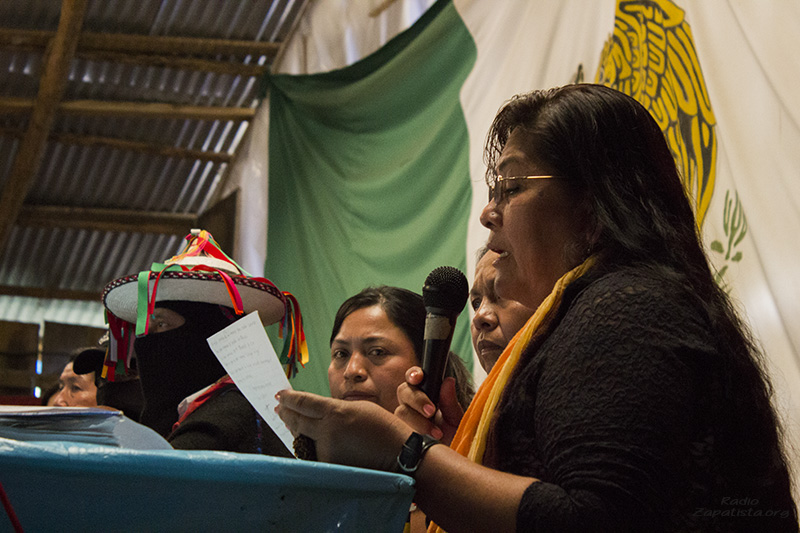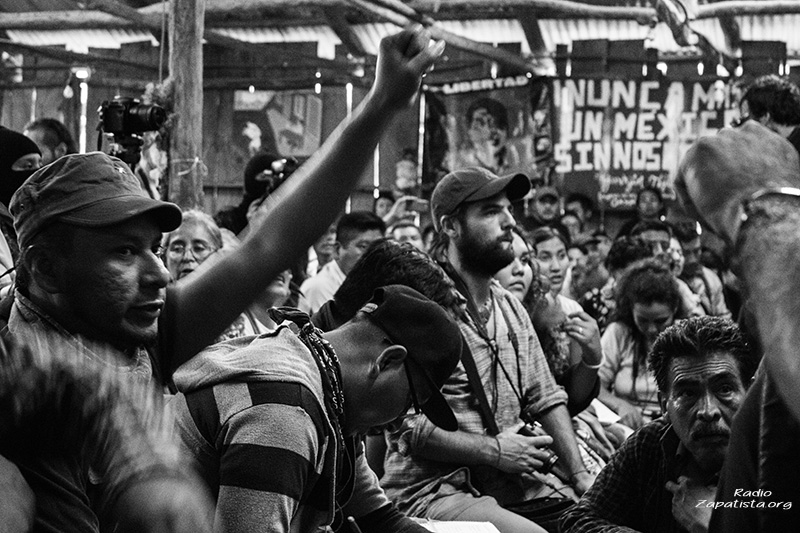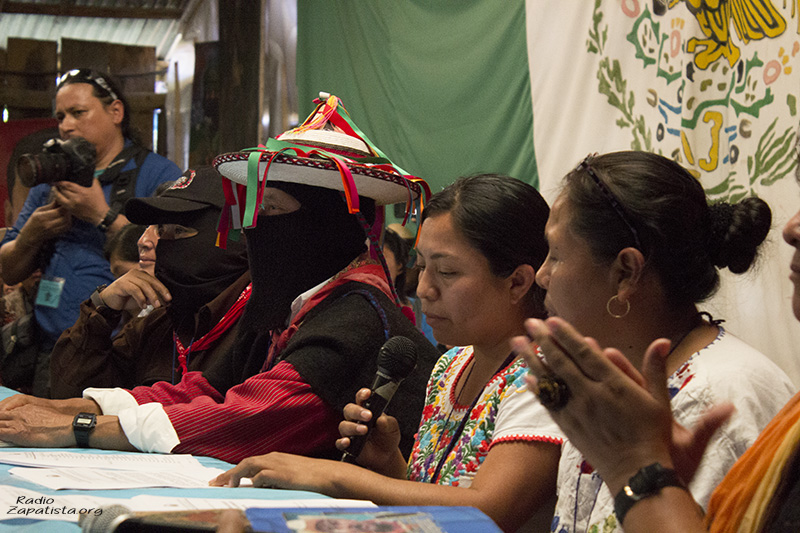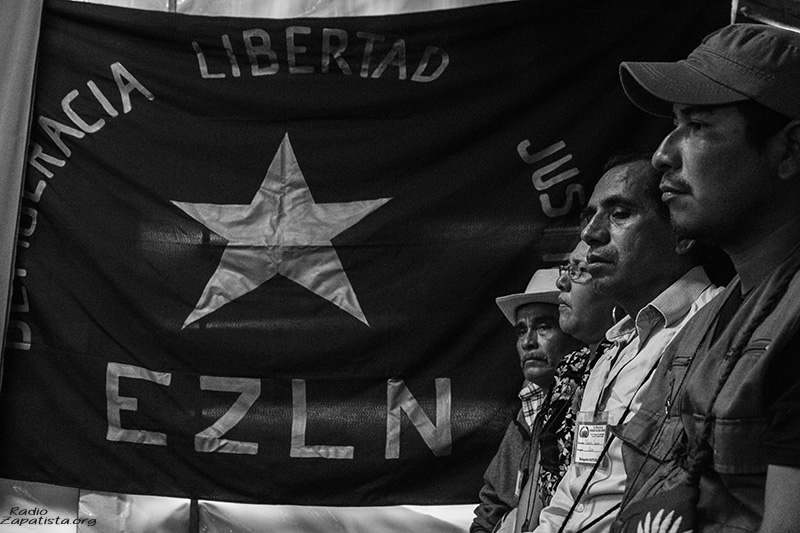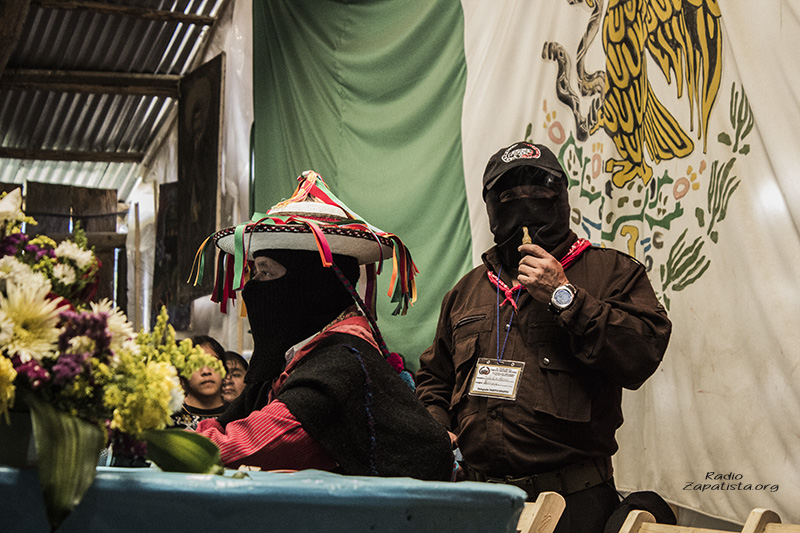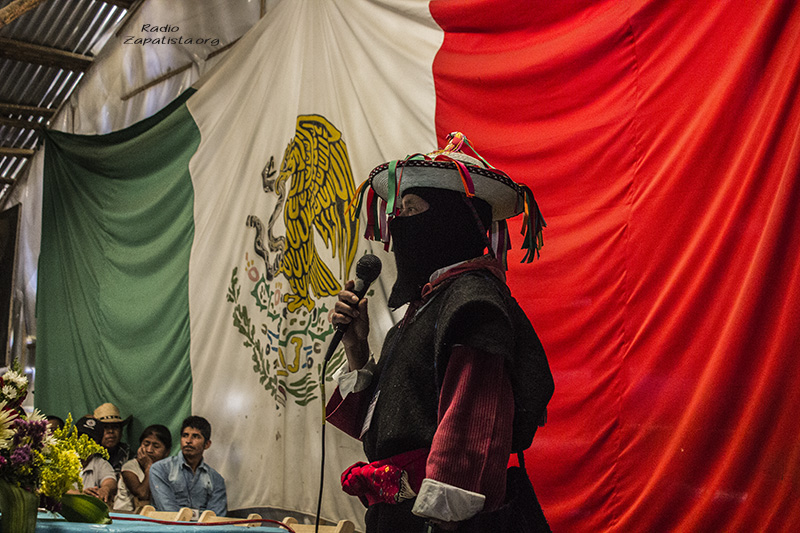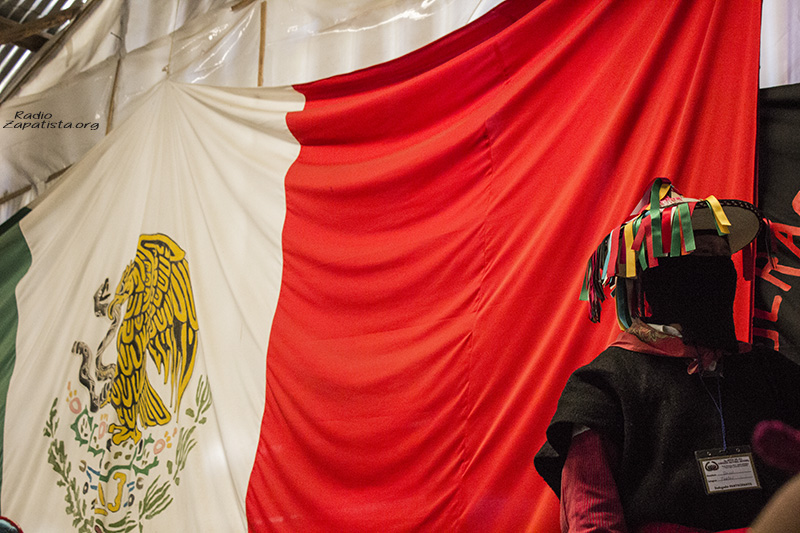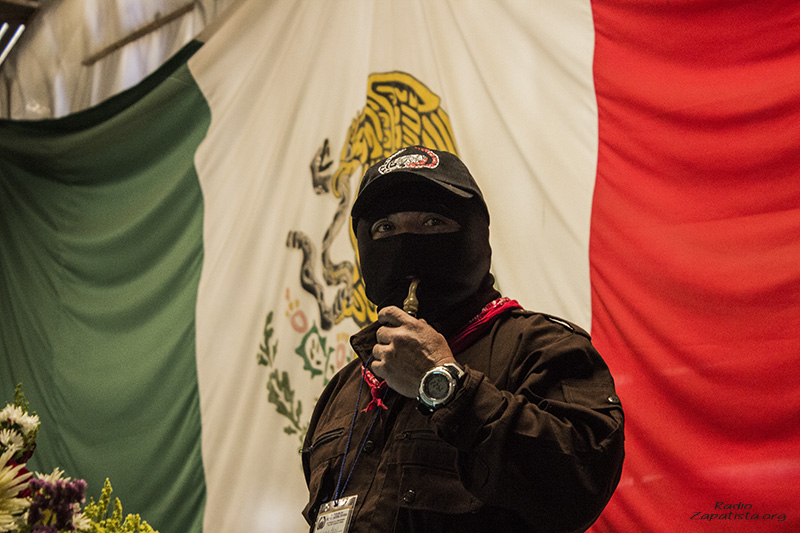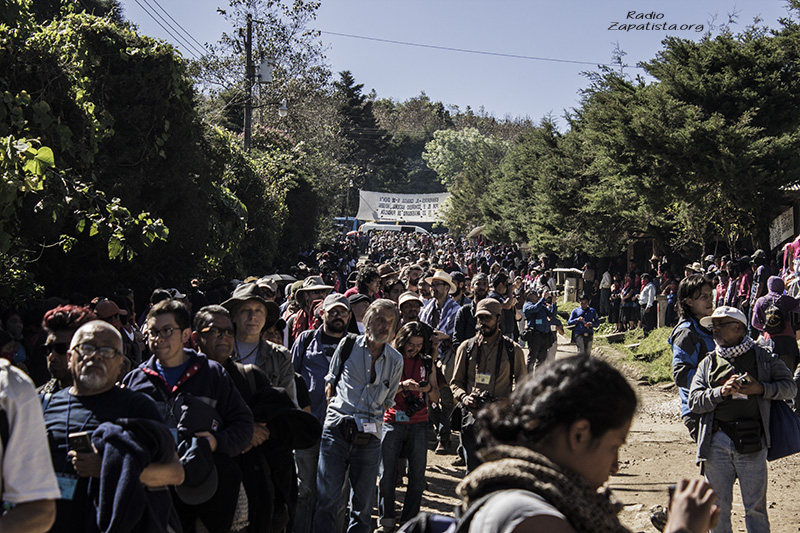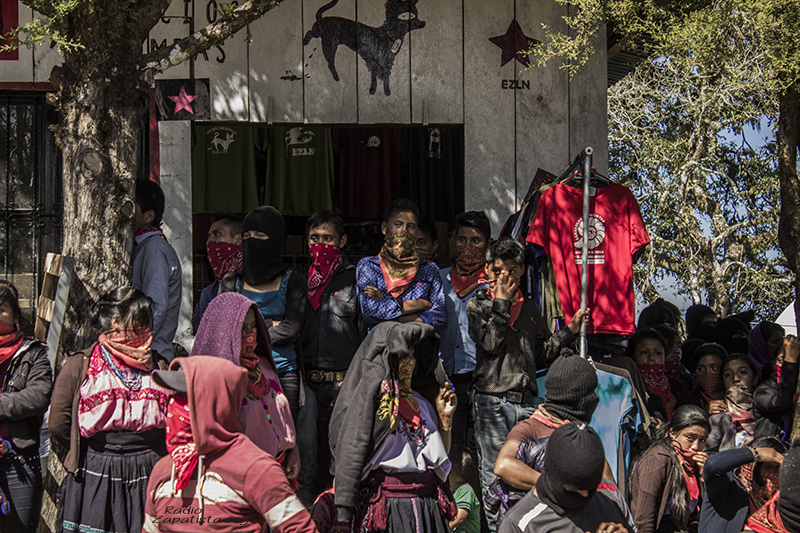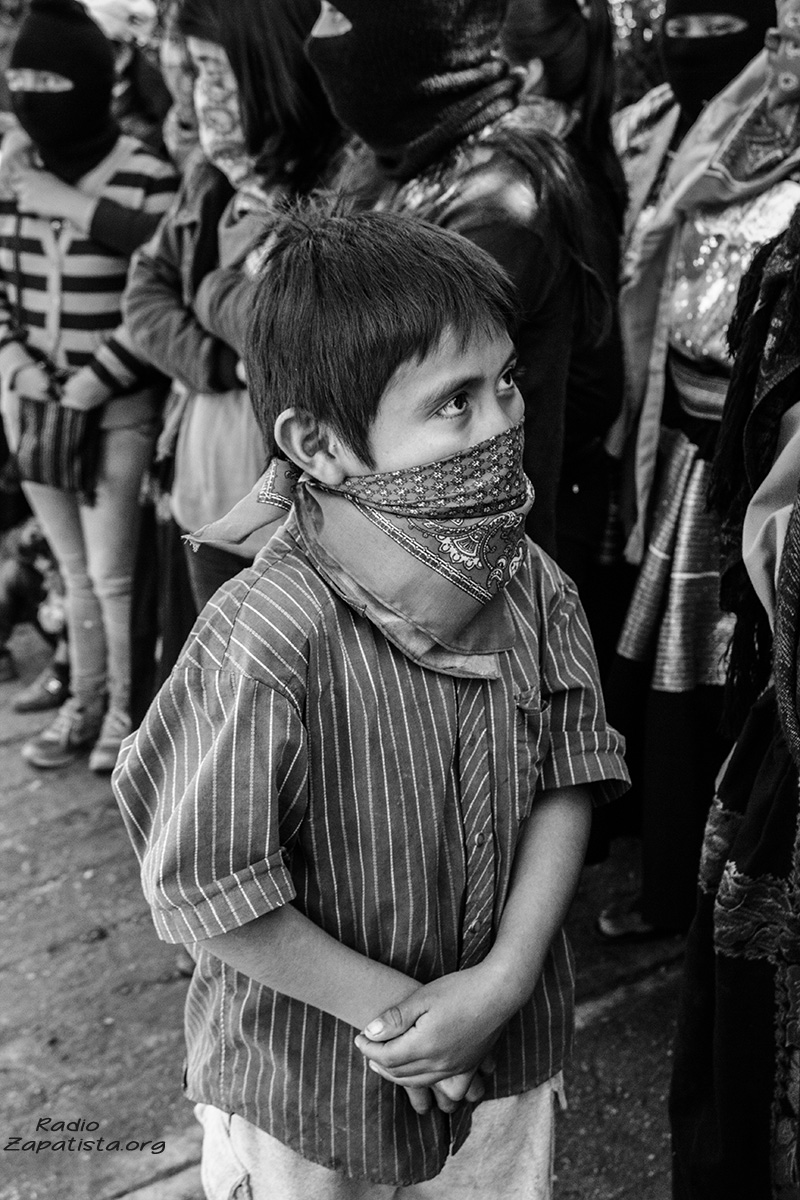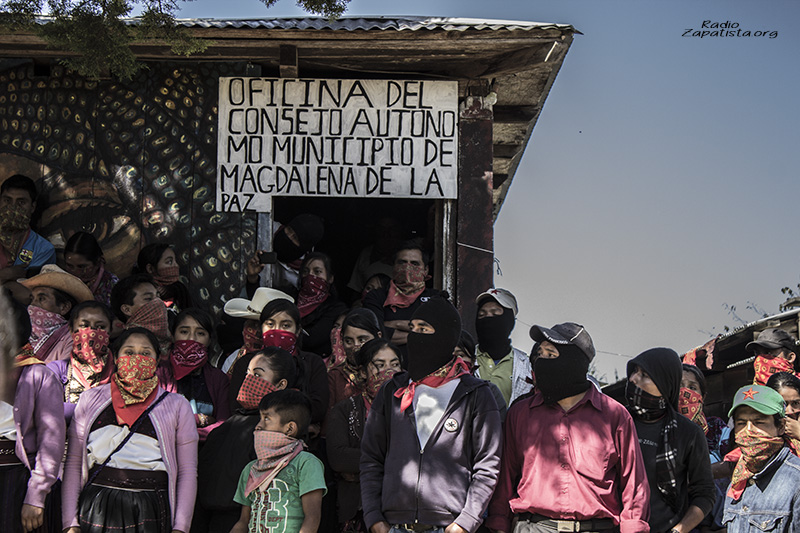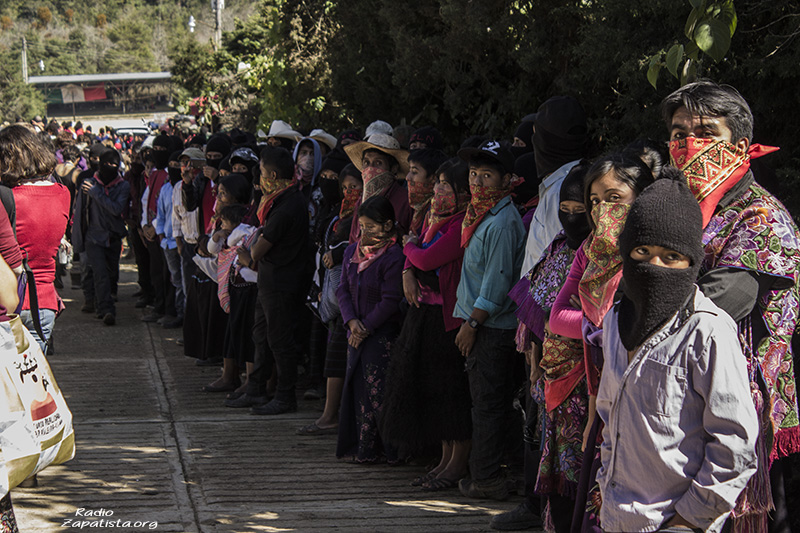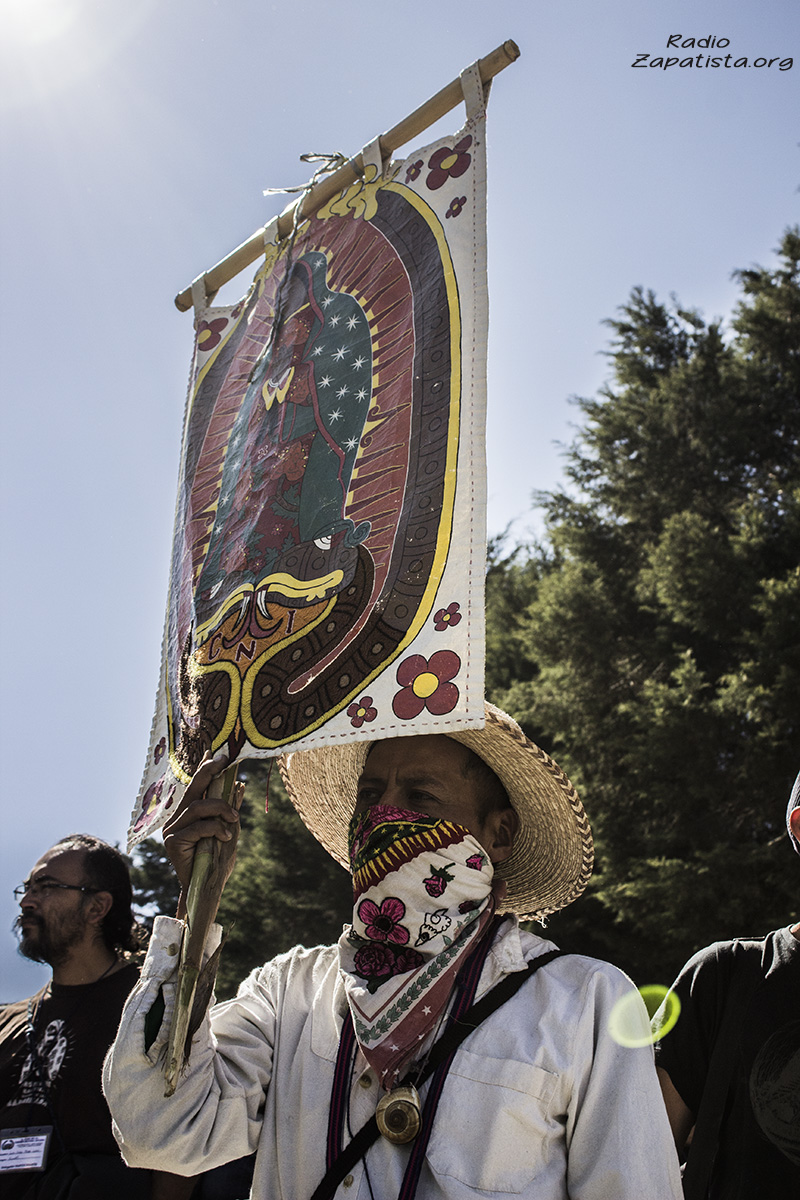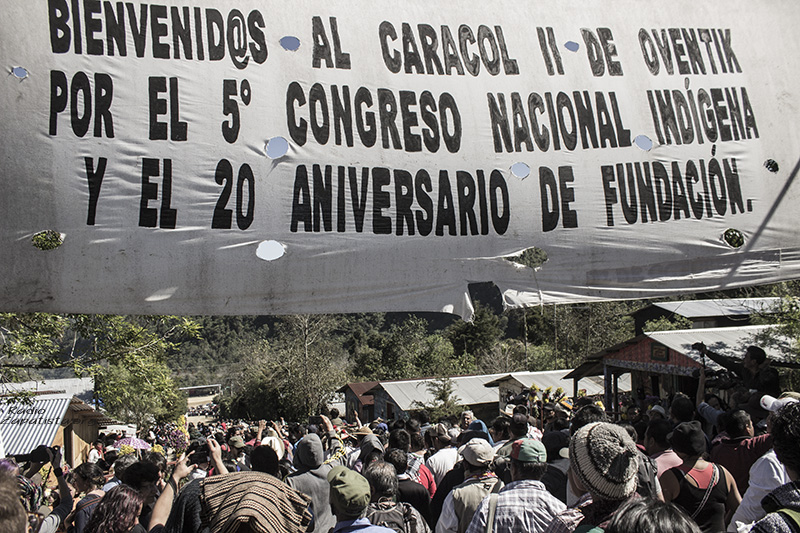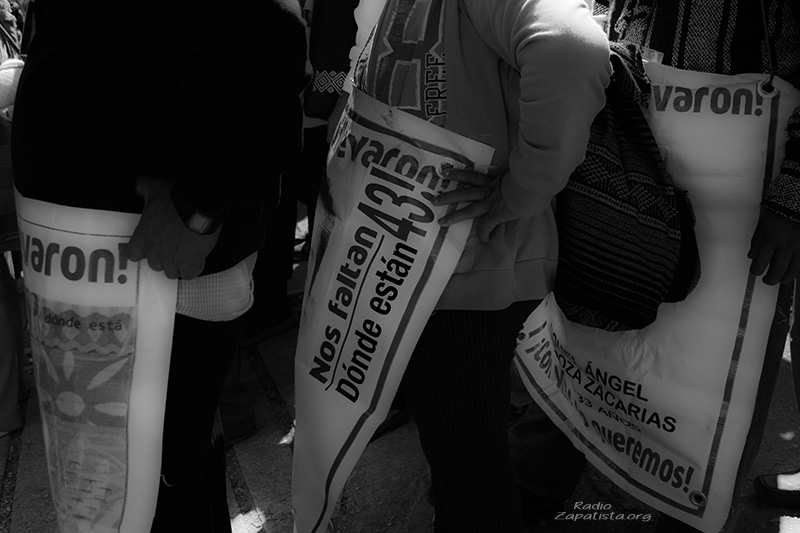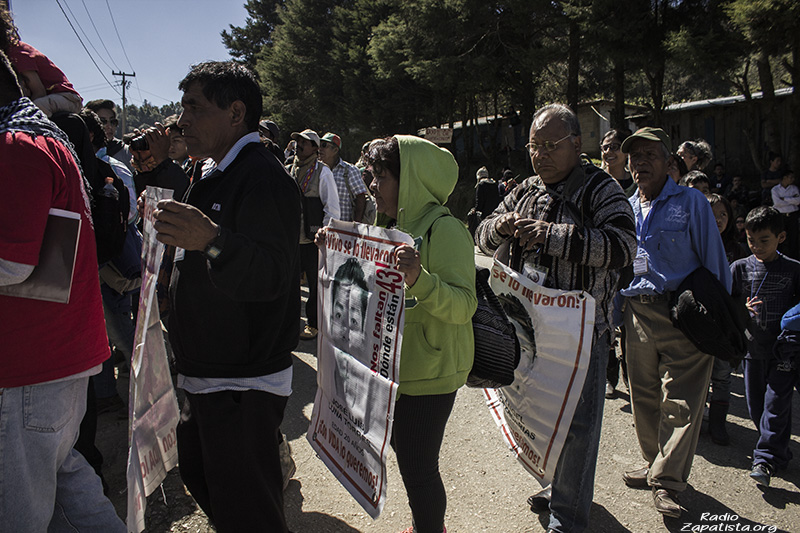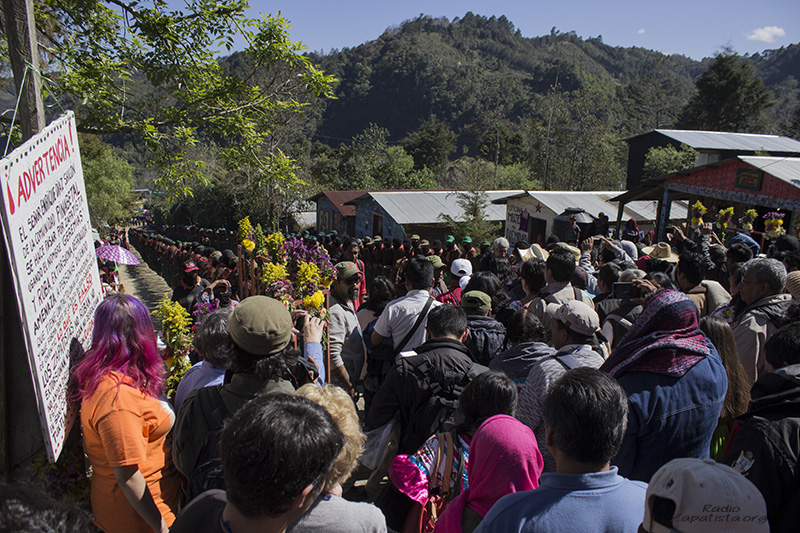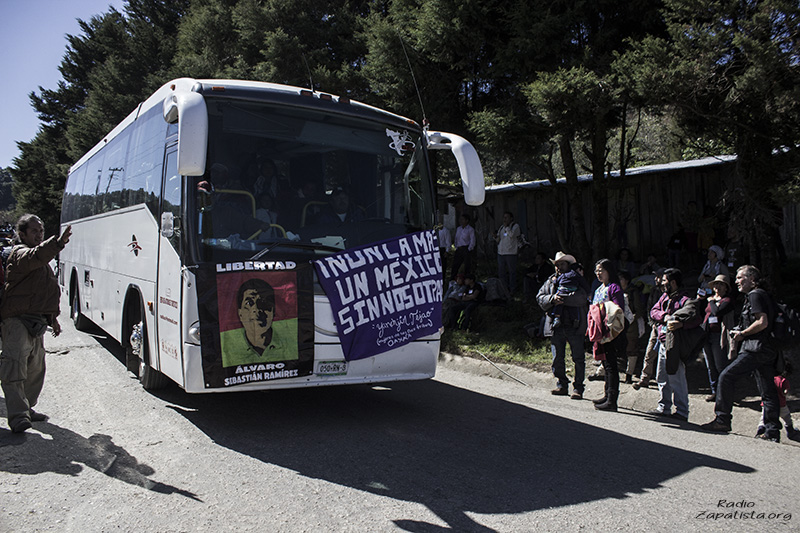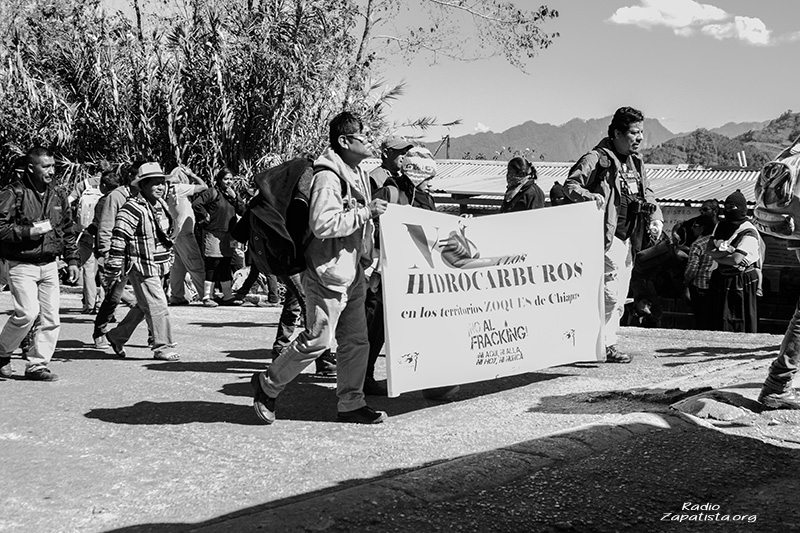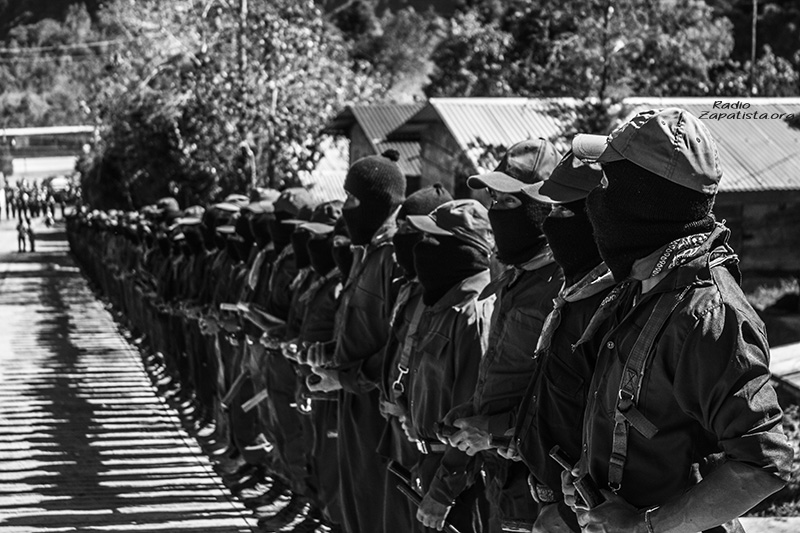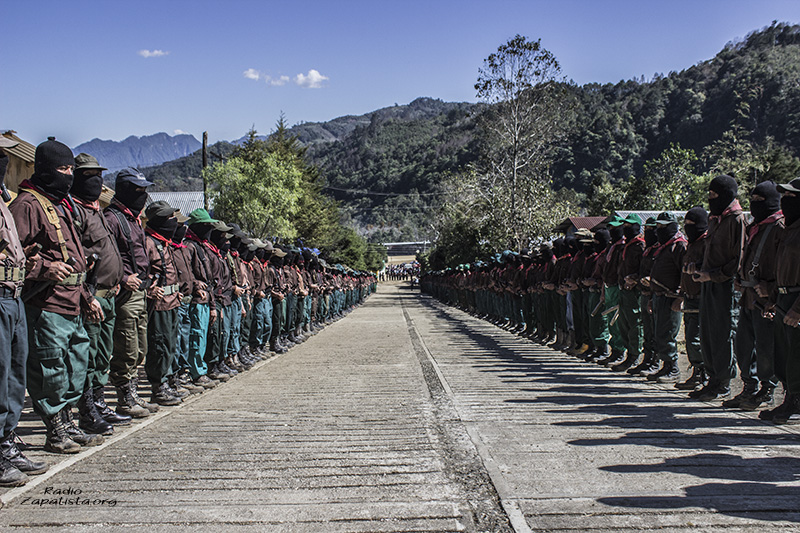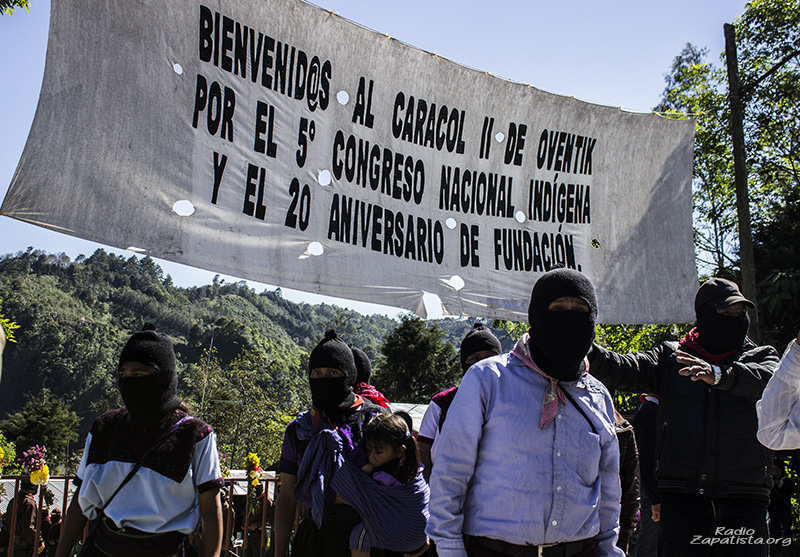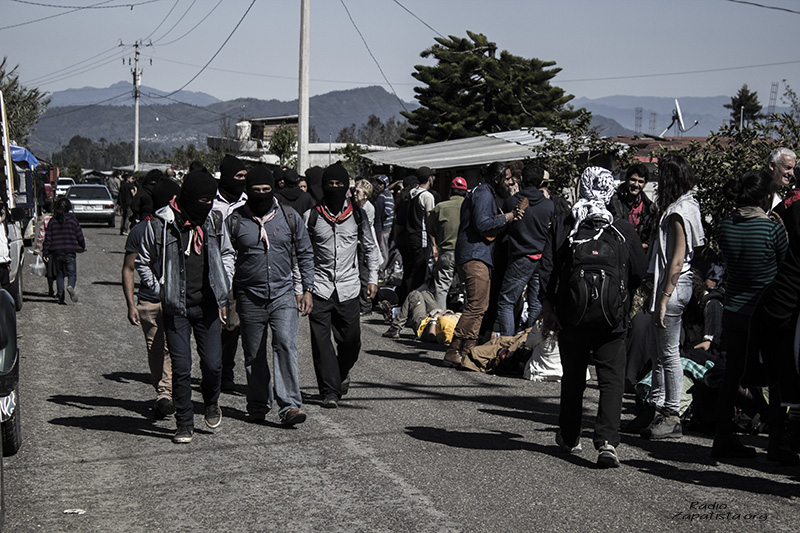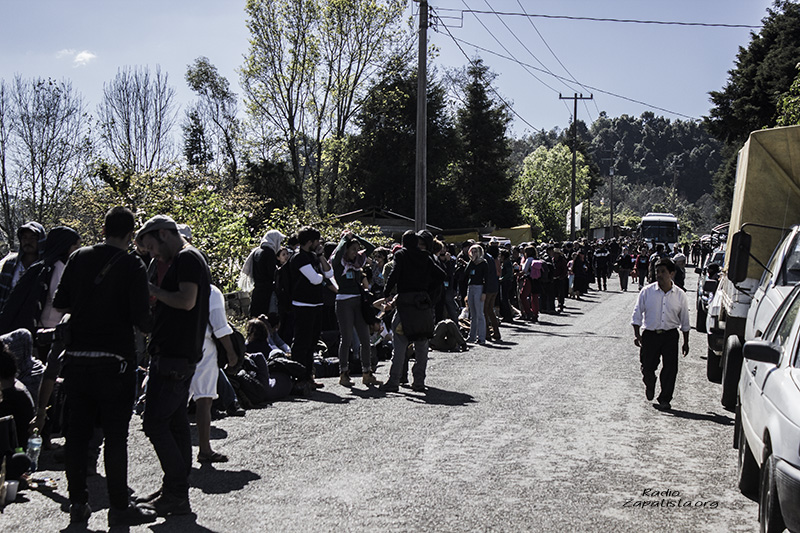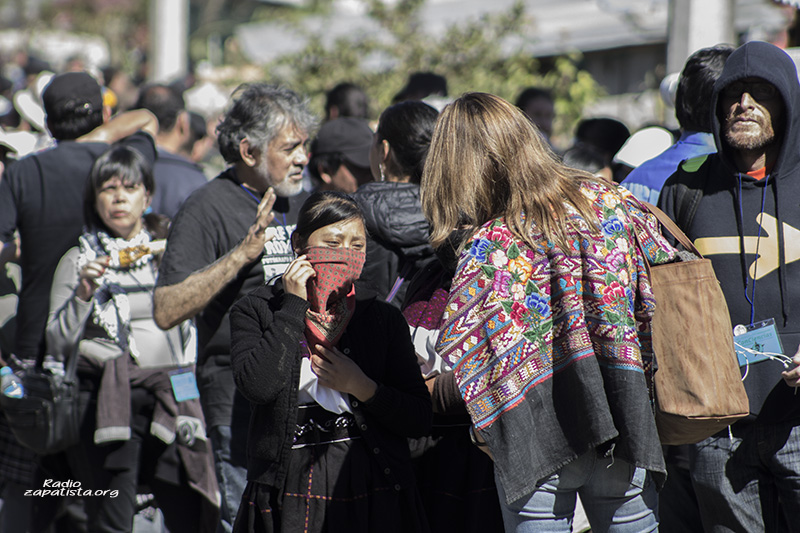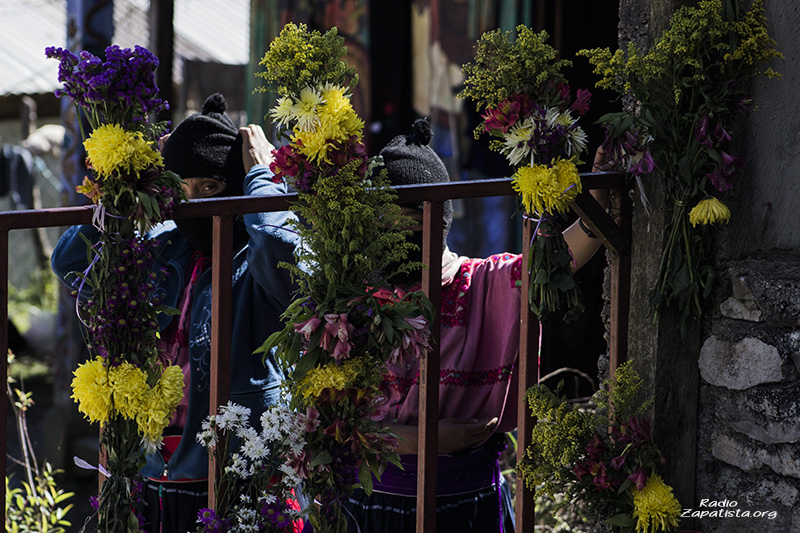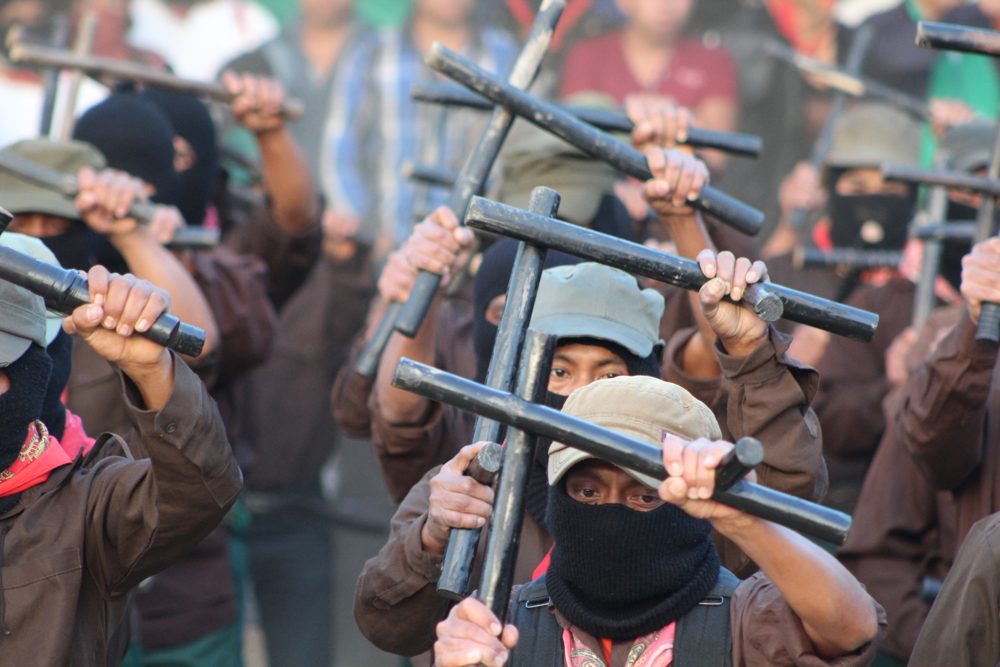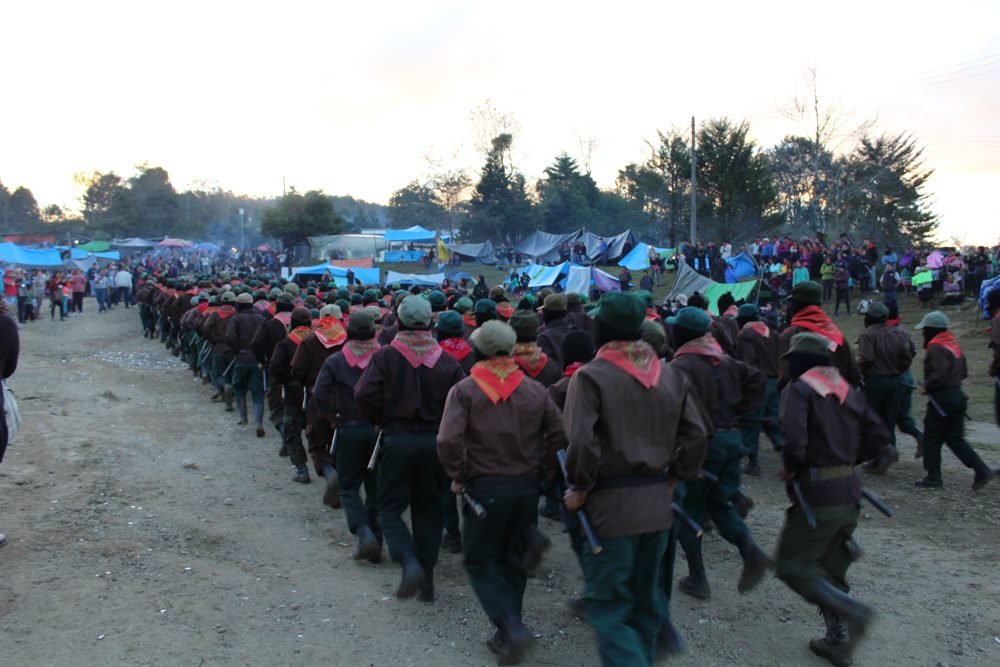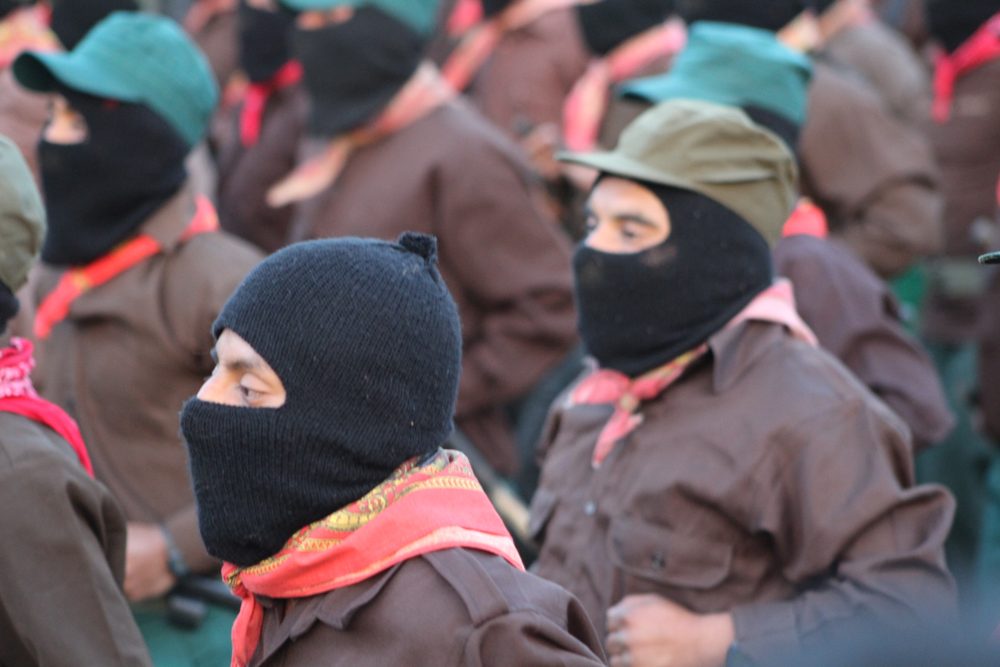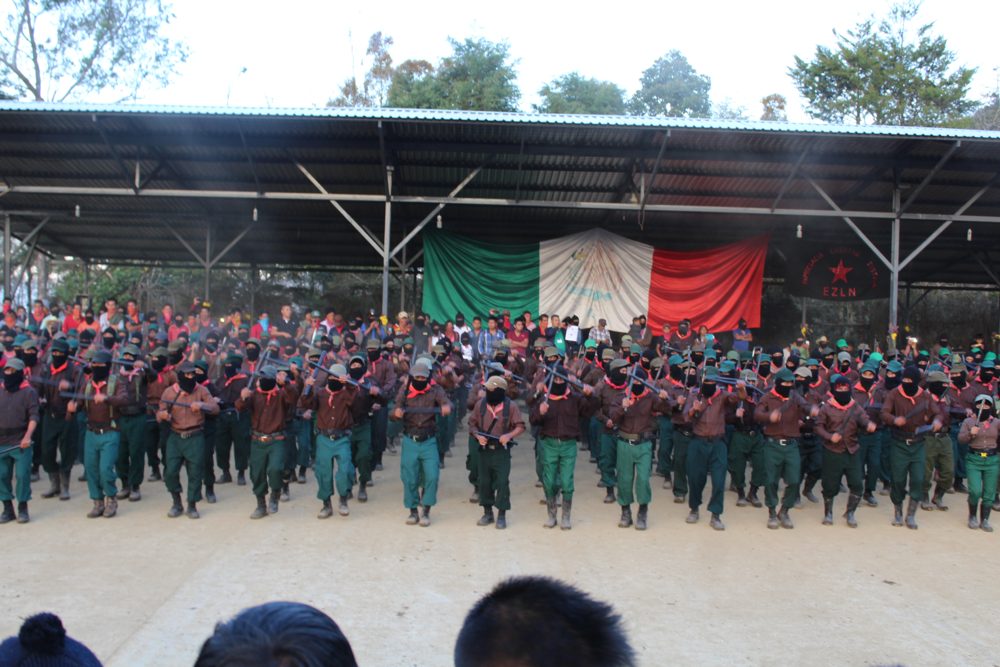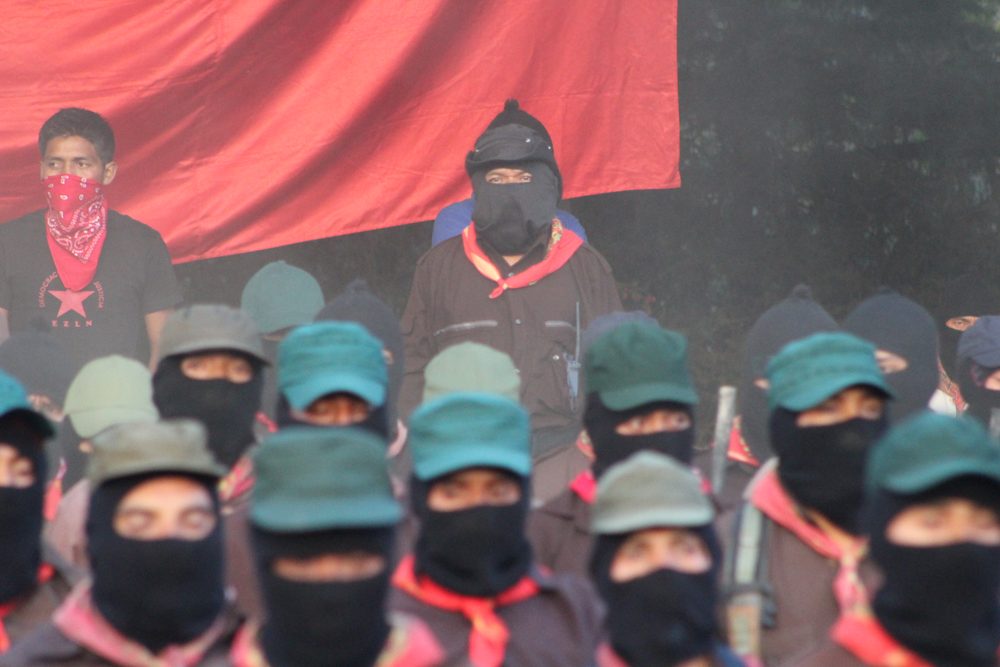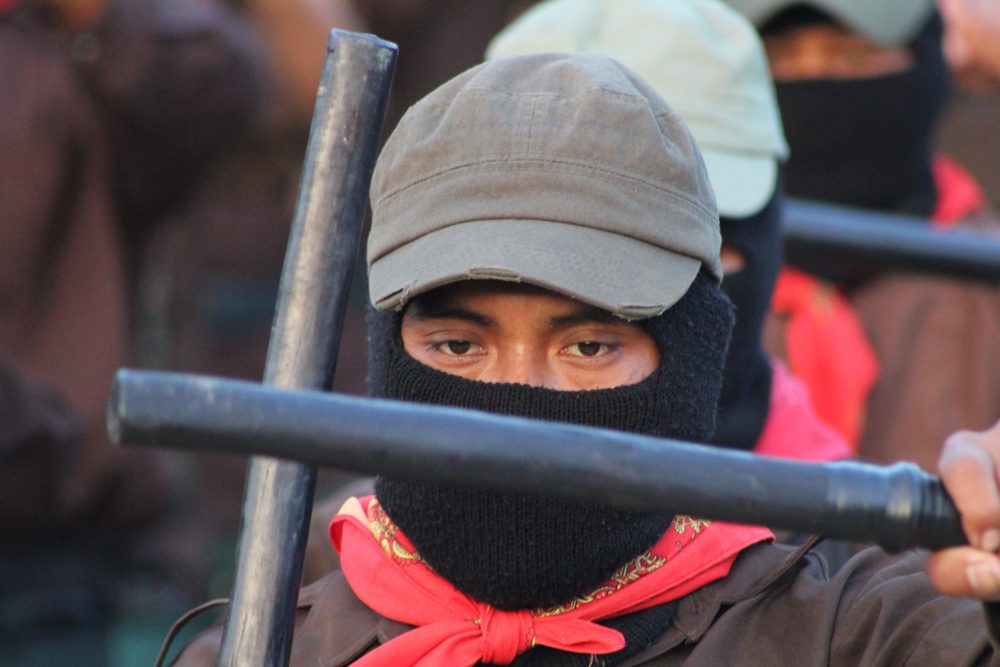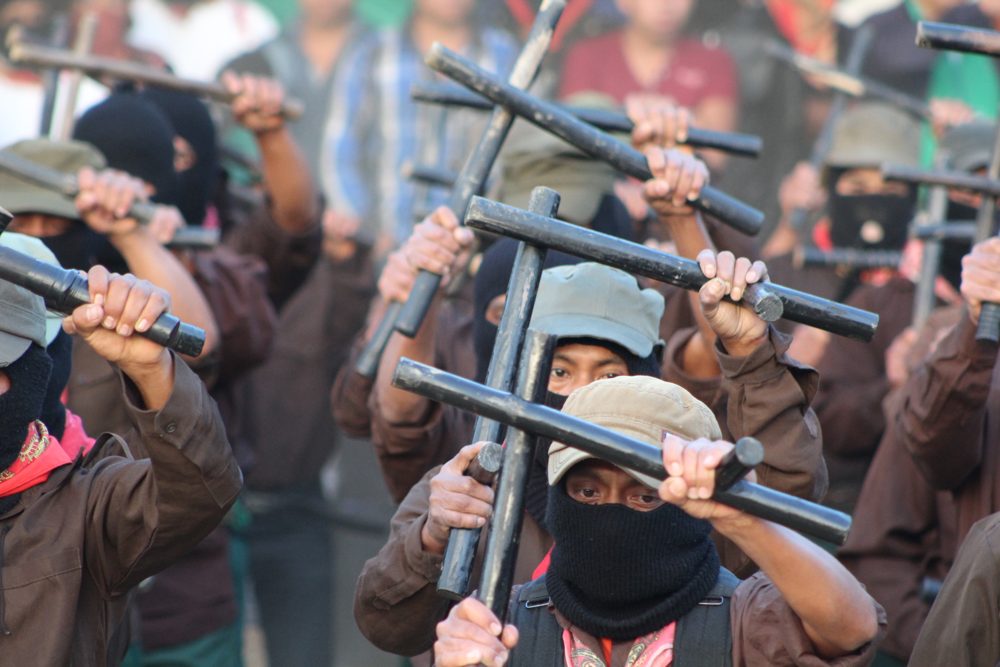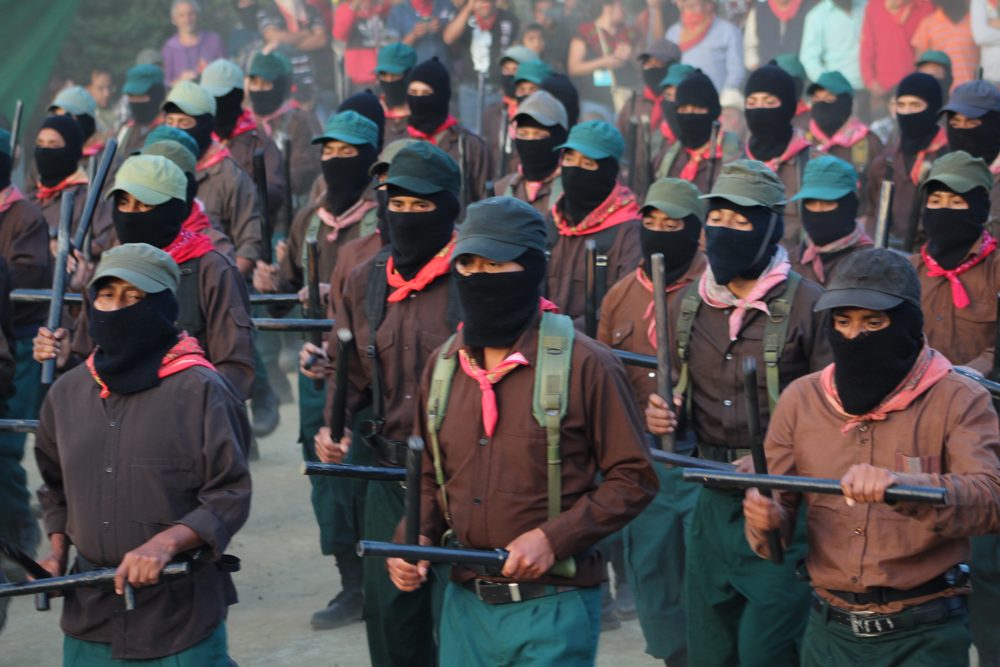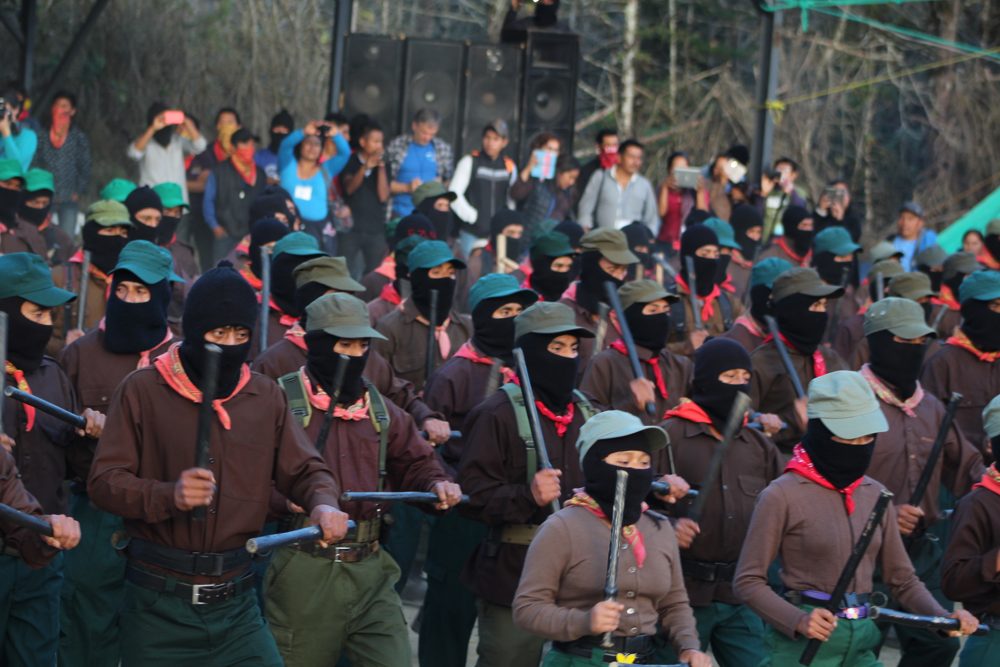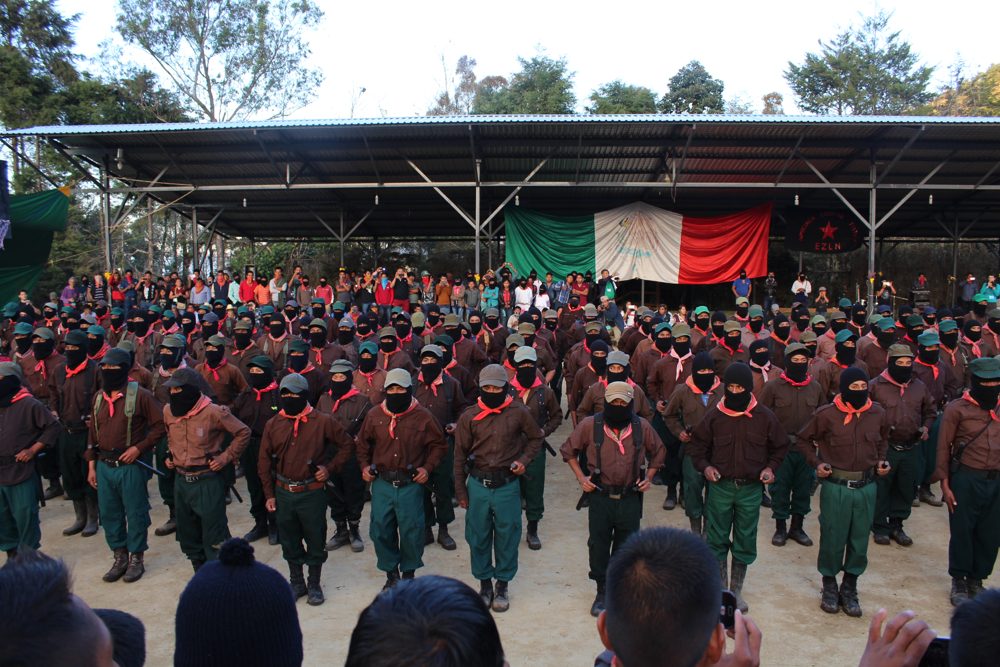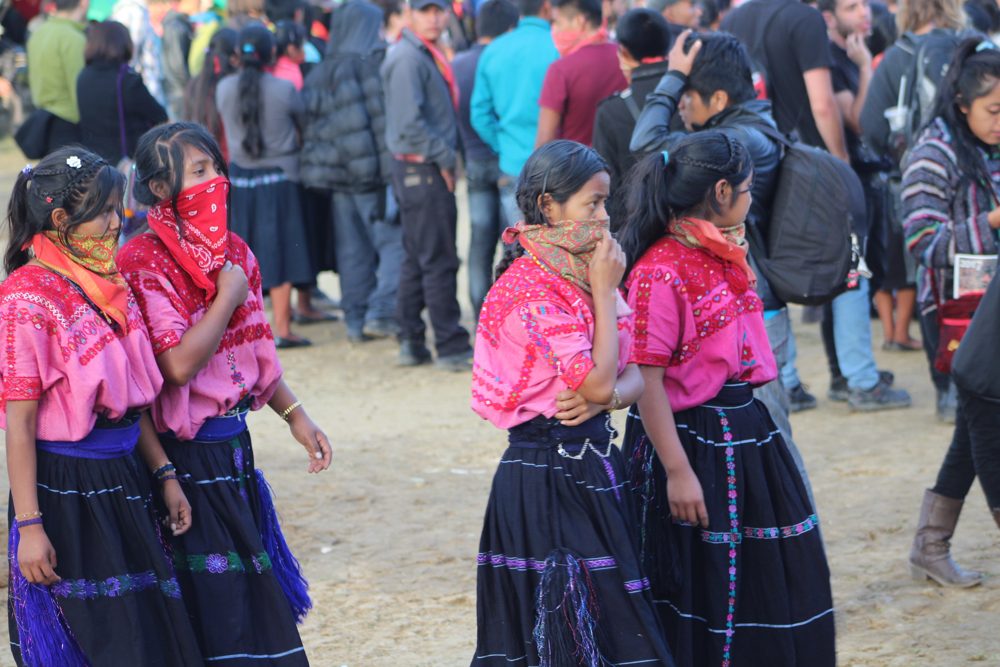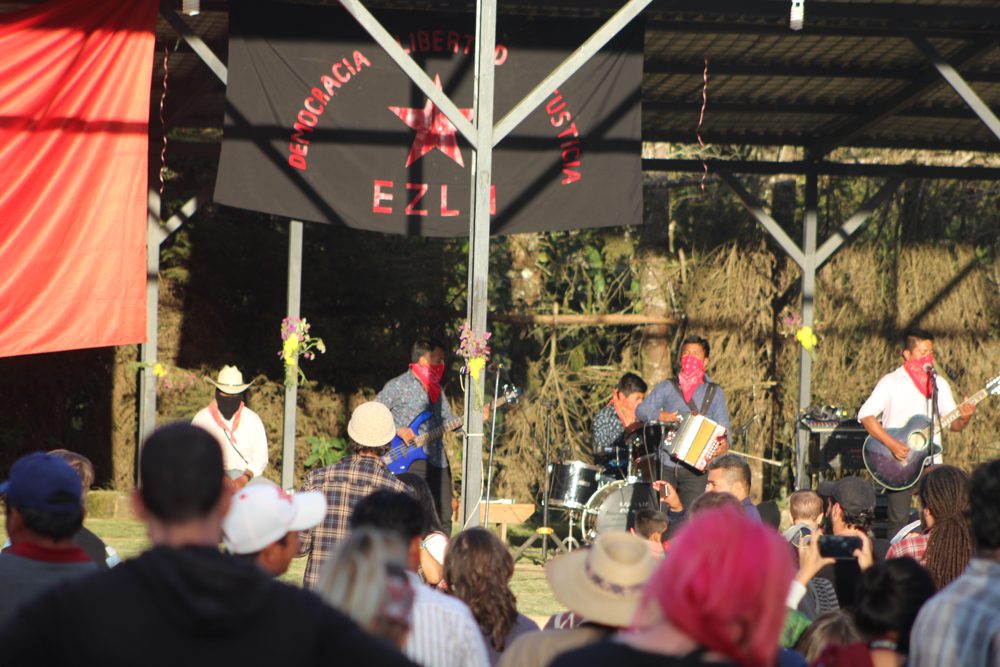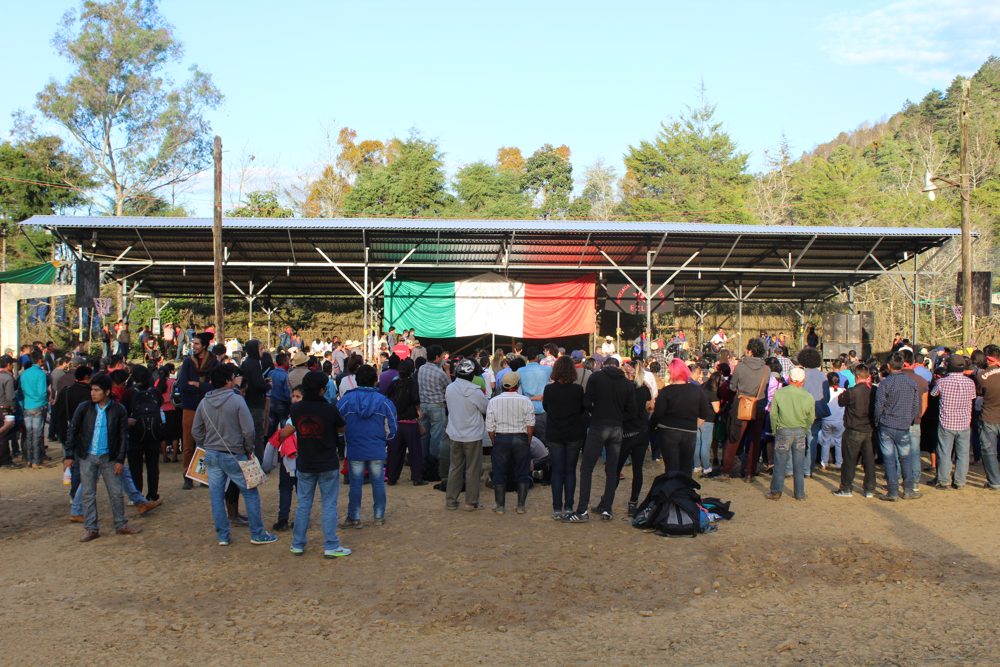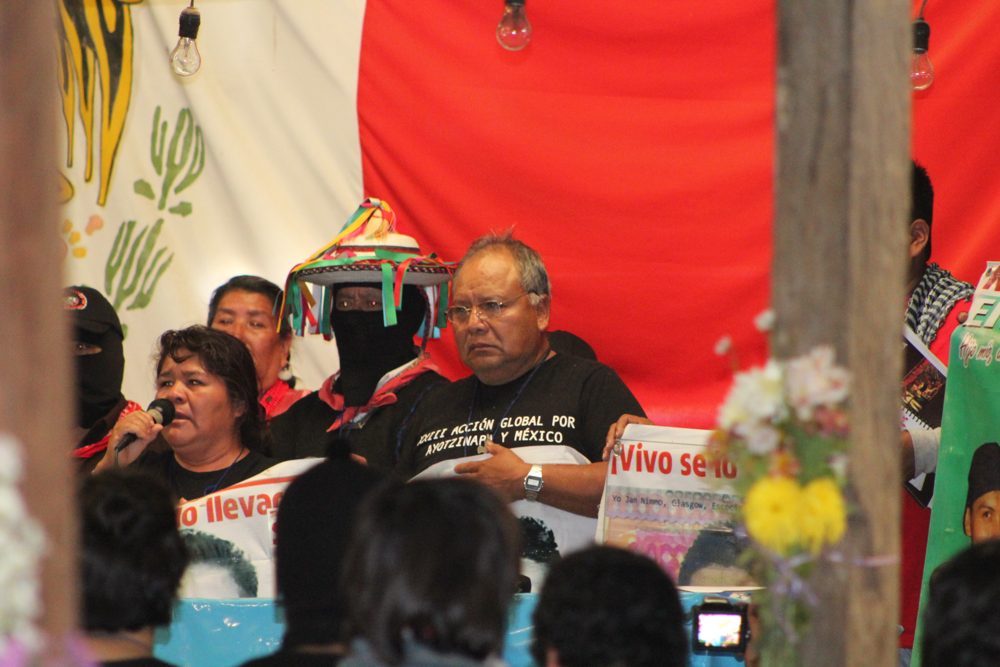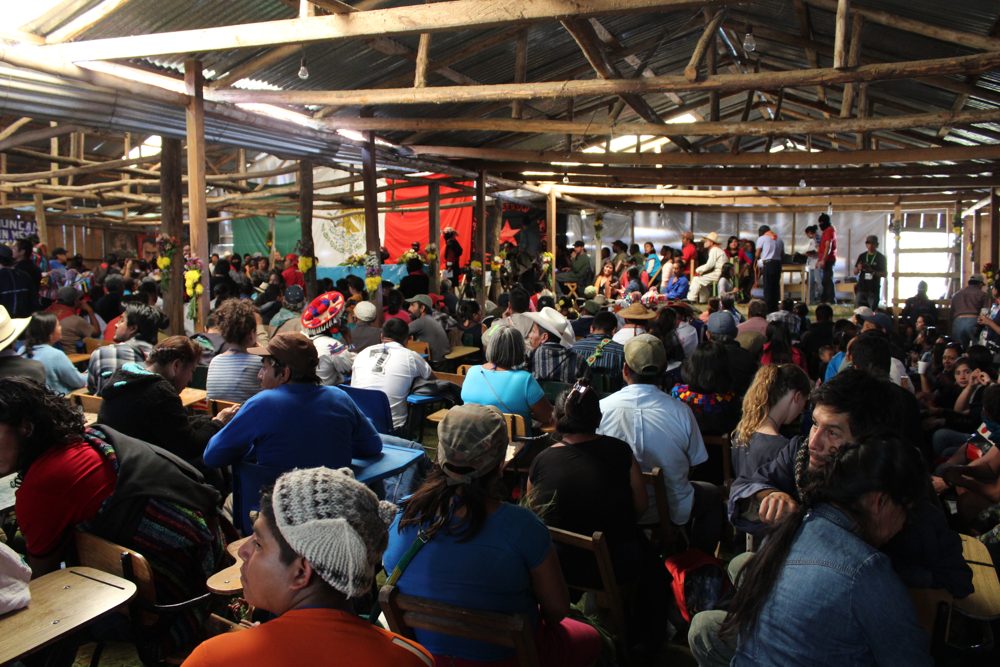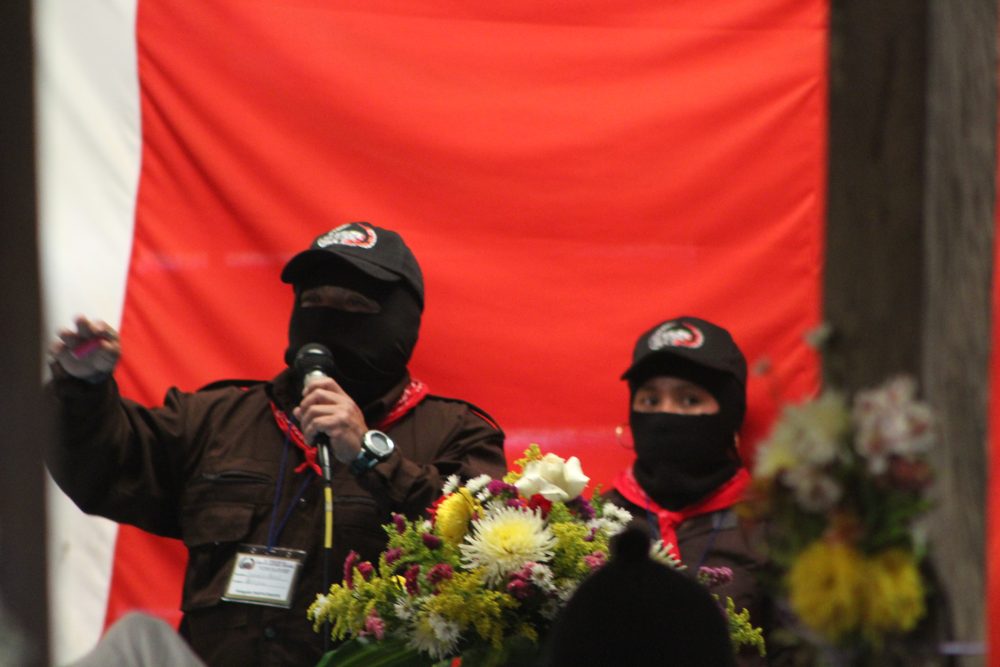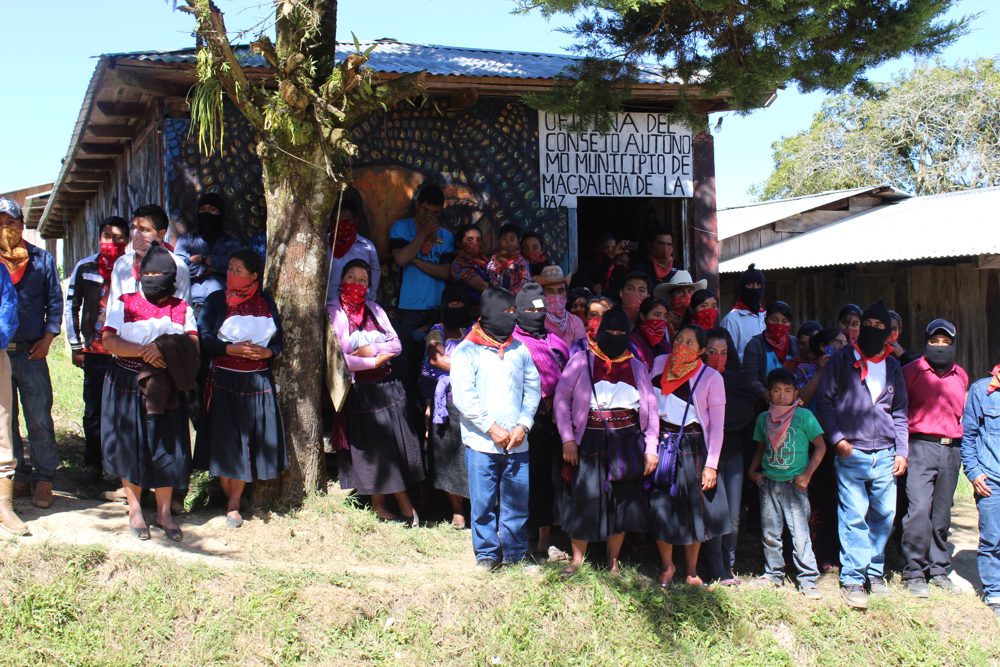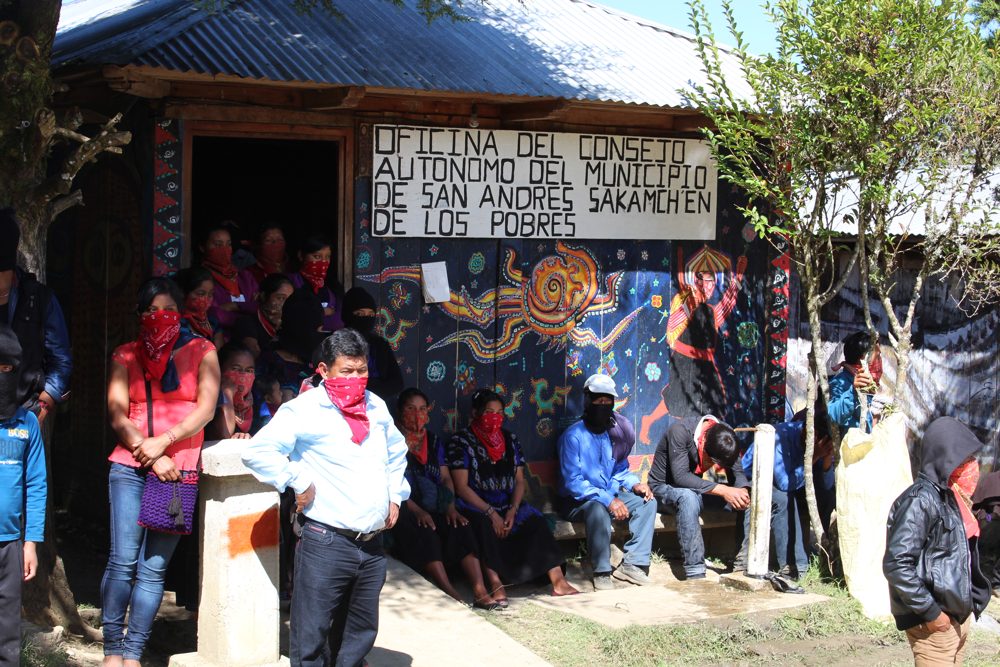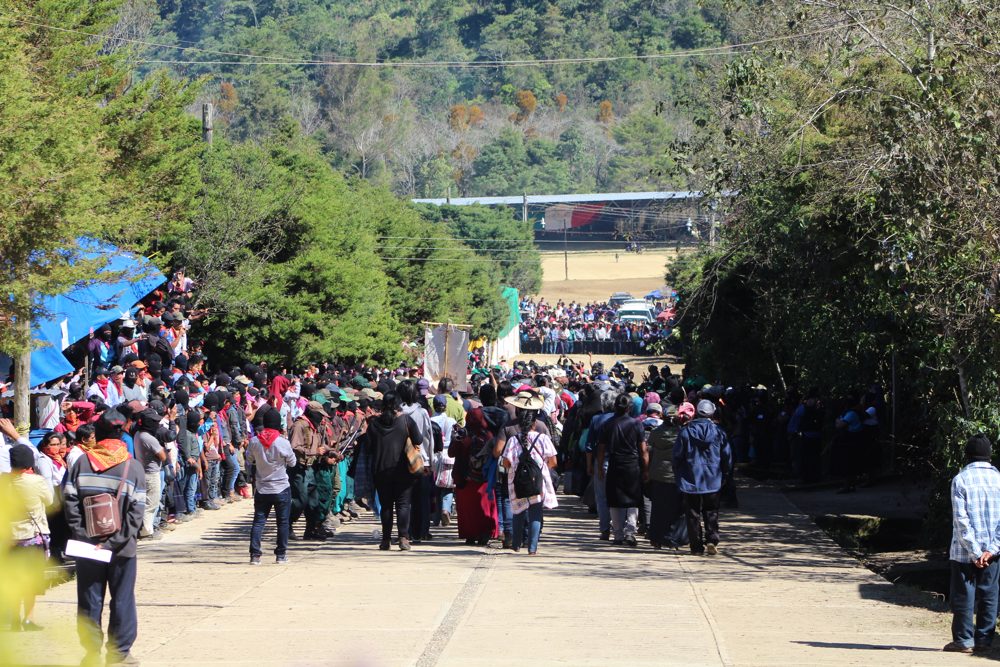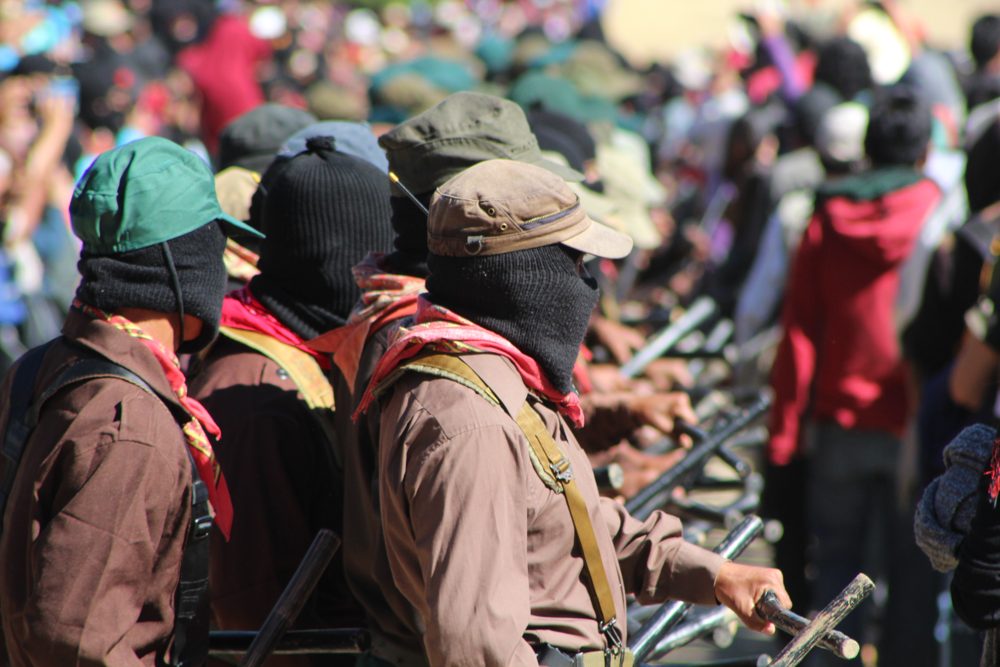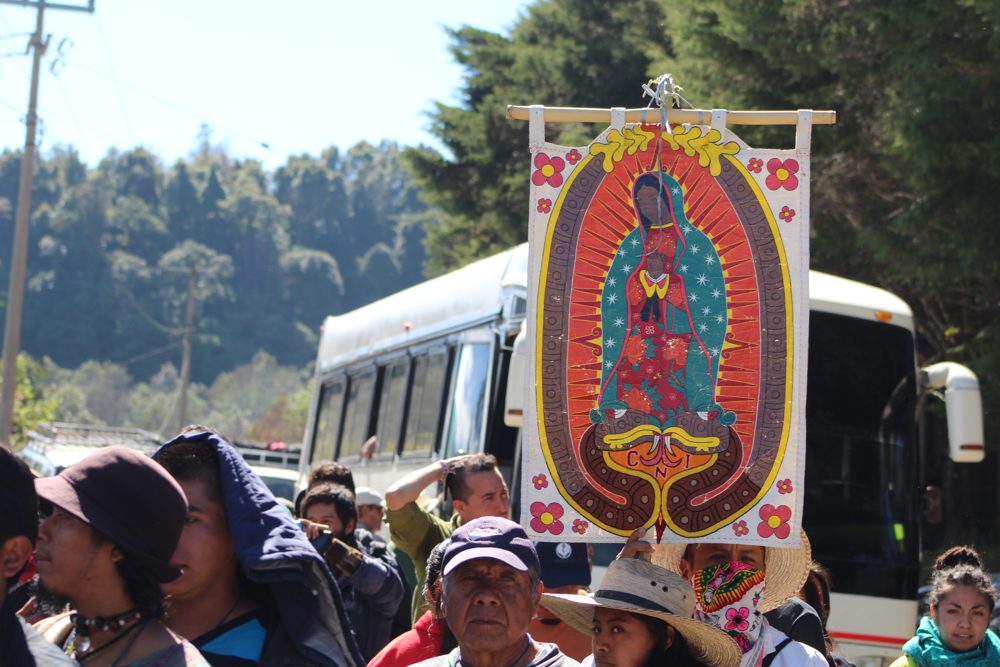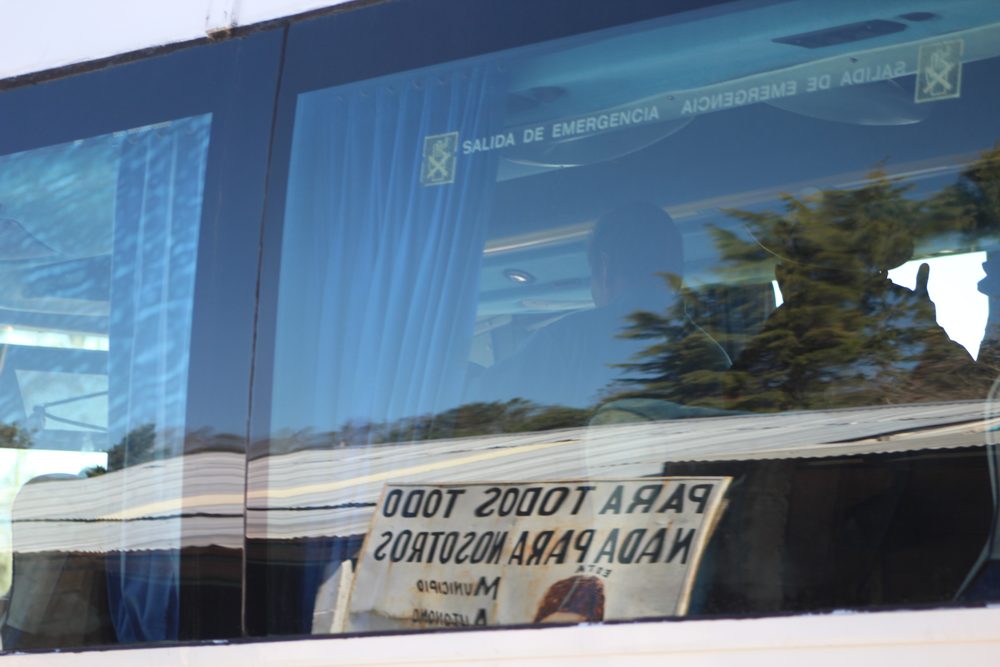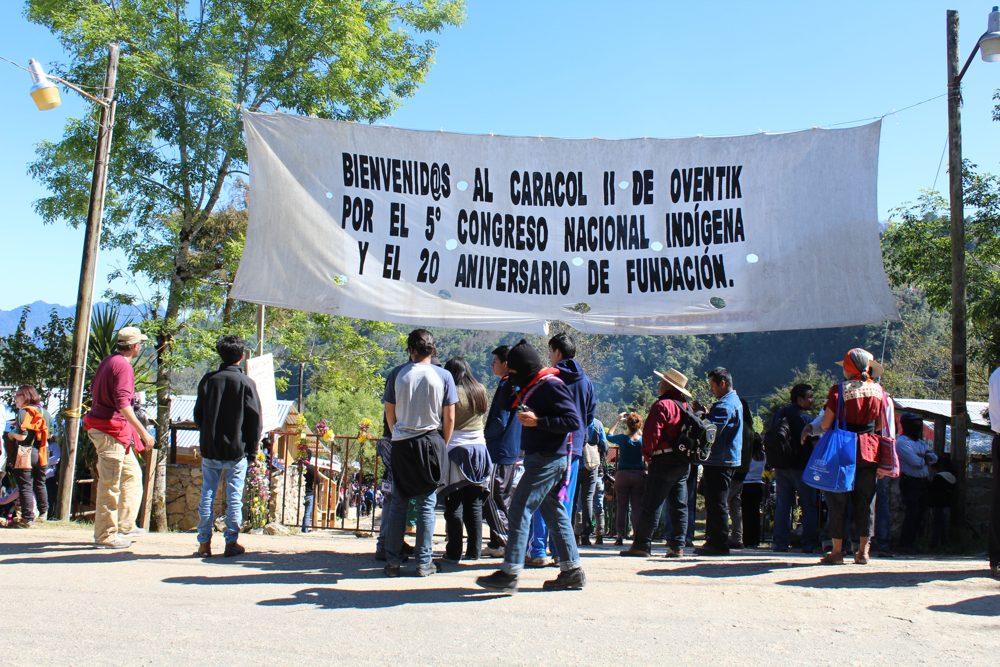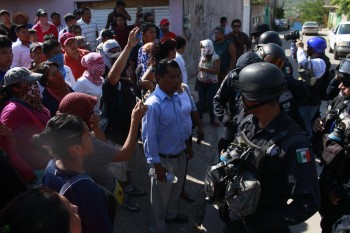(Em português aqui.)
AND THE EARTH TREMBLED! A REPORT FROM THE EPICENTER…
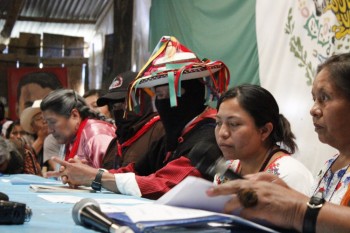
Listen here: [podcast]https://radiozapatista.org/Audios/palabrasdespedidacni.mp3[/podcast]
To the Originary Peoples of Mexico:
To Civil Society of Mexico and the World:
To the National and International Sixth:
To the Free Media:
Brothers and Sisters:
This is the time of the originary peoples, the time for us to replant and rebuild ourselves. It is time to go on the offensive and this is the agreement that we have laid out for how to do so, from our perspective as individuals, as communities, as originary peoples, and as the National Indigenous Congress [CNI]. It is time for dignity to govern this country and this world and for democracy, liberty, and justice to flourish in its step.
We are announcing here that during the second phase of the Fifth National Indigenous Congress we meticulously analyzed the results of the consultation process that we held among our peoples during the months of October, November, and December of 2016. In that process, we issued agreements from communal, ejidal, collective, municipal, inter-municipal and regional assemblies in all of the ways, forms, and languages that represent our peoples in the geography of this country, once again bringing us to understand and confront, with dignity and rebellion, the situation that we face in our country and the world.
We appreciate the messages of support, hope, and solidarity that came from intellectuals, collectives, and peoples in response to our proposal entitled “Let the Earth Tremble at its Core,” which we made public during the first phase of the Fifth National Indigenous Congress. We also acknowledge the critical voices, many of them making fundamentally racist arguments, that expressed indignant and contemptuous rage at the idea that an indigenous woman would aspire not only to contend for presidential election, but would propose to truly change, from below, this broken country.
To all of them, we say that the earth indeed has trembled, and we along with her, and that we intend to shake the conscience of the entire nation, and that, in fact, we intend for indignation, resistance and rebellion to be present as an option on the electoral ballots of 2018. But we also say that it is not at all our intention to compete with the political parties or with the political class who still owe this country so much. They owe us for every death, disappearance, and imprisonment, and every dispossession, repression, and discrimination. Do not mistake our intentions. We do not plan to compete against them, because we are not the same as they are. Unlike them, we are not filled with lies and perverse words. We are instead the collective word of below and to the left, that which shakes the world and makes it tremble with epicenters of autonomy, and which makes us so proudly different from them that:
- While the country is submerged in fear and terror born from the thousands of dead and disappeared, in the municipalities of the mountains and the coast of Guerrero our peoples have created conditions of real security and justice. In Santa María Ostula, Michoacán, the Nahua people have united with other indigenous communities to ensure that security remains in the hands of the people. The epicenter of the resistance there is the communal assembly of Ostula, the guarantor of the ethic of a movement that has already permeated the municipalities of Aquila, Coahuayana, Chinicuila, and Coalcomán. In the Purépecha plateau, the community of Cherán has demonstrated that by organizing to eliminate the politicians from their bad government structure and by exercising their own forms of security and government they could not only construct justice, but also, as in other geographies across this country, they showed that only from below, from rebellion, can a new social pact be constructed that is autonomous and just. And we have not and will not stop constructing from below the truth and justice denied to the 43 disappeared students from the teacher’s college of Ayotzinapa, Guerrero, the 3 student compañeros who were murdered, and their compañeros who were injured, all by the Mexican narco-government and its repressive forces. Meanwhile, all levels of the bad governments criminalize social struggle and resistance and rebellion, persecuting, accusing, disappearing, imprisoning, and murdering the men and women who struggle for just causes.
- While destruction reaches every corner of the country, knowing no limits and distancing people from their land and from that which is sacred, the Wixárika people, together with the committees in defense of life and water from the Potosino altiplano, have shown that they can defend a territory and their environment and can create an equilibrium based in an identification with nature, with a sacred vision that recreates, every day, the ancestral links with life, land, the sun, and the ancestors, reaching across 7 municipalities in the sacred ceremonial territory of Wirikuta in San Luis Potosí.
- While the bad governments deform State policies on education, placing education at the service of capitalist corporations such that it ceases to be a right, the originary peoples create primary schools, secondary schools, high schools and universities with their own educational systems, based in the protection of our mother earth, in defense of territory, in production, in the sciences, in the arts, and in our languages. Despite the fact that the majority of these processes grow without the support of any level of the bad government, these institutions are meant to serve everyone.
- Meanwhile, the paid media – spokespeople for those who prostitute every one of the words that they circulate and fool the people in the country and the city so that they don’t wake from their slumber – criminalize those who think and defend what is theirs, making them out to be delinquents, vandals, and misfits, while those who benefit from ignorance and alienation are the ones with high social status. Those who oppress, repress, exploit and dispossess are always made out to be the good guys, the ones who deserve to be respected and allowed to govern so that they can serve themselves. While all of this is happening, the communities have made their own media, creating ideas in different ways so that conscience cannot be overshadowed by the lies that the capitalists impose, and instead using them to strengthen organization from below, where every true word is born.
- While the representative “democracy” of the political parties has been converted into a parody of the popular will, where votes are bought and sold like any other commodity and poverty is used to manipulate people so that the capitalists can maintain the division between the people of the countryside and the city, the originary peoples continue to care for and strengthen their forms of consensus and to cultivate assemblies as organs of government where through the voice of everyone together profoundly democratic agreements are made, across entire regions, through assemblies that articulate with agreements of other assemblies, which themselves emerge from the profound will of each family.
- While the governments impose their decisions to benefit the few, supplanting the popular will of the people and criminalizing and repressing whoever opposes their projects of death which they impose at the cost of the blood of our peoples—such as the New Airport of Mexico City, pretending to consult them while actually imposing death—we originary peoples have consistent ways and forms for free, prior and informed consent, however small or large that may be.
- While the bad governments hand energy sovereignty over to foreign interests through privatization, and the high cost of gasoline reveals the face of capitalism which in fact only opens a road toward inequality and the rebellious response of the indigenous and non-indigenous peoples of Mexico, the powerful can neither hide nor silence this rebellion. We peoples unite and fight to stop the destruction of our territories through fracking, wind farms, mining, oil wells, and gas and oil pipelines in the states of Veracruz, Sonora, Sinaloa, Baja California, Morelos, Oaxaca, Yucatán and the entire national territory.
- While the bad governments impose their toxic and genetically modified food on consumers across the countryside and in the cities, the Mayan people continue their indefatigable struggle to stop the planting of genetically modified seed on the Yucatan peninsula and across the country in order to conserve the ancestral genetic wealth that also symbolizes our life and collective organization and is the basis for our spirituality.
- While the political class only destroys and makes empty promises, we peoples build, not only in order to govern but also in order to exist with autonomy and self-determination.
Our resistances and rebellions constitute the power of below. We don’t offer empty promises or actions, but rather real processes for radical transformation where everyone participates and which are tangible in the diverse and enormous indigenous geographies of this nation. This is why, as the National Indigenous Congress, which brings together 43 peoples of this country in this Fifth Congress, WE AGREE to name an Indigenous Governing Council with men and women representatives from each one of the peoples, tribes, and nations that make up the CNI. This council proposes to govern this country. It will have an indigenous woman from the CNI as its spokesperson, which is to say a woman who has indigenous blood and who knows her culture, and this indigenous woman spokesperson from the CNI will be an independent candidate for the presidency of Mexico in the 2018 elections.
That is why we, the CNI, as the Home for All Indigenous Peoples, are also the principles that configure the ethic of our struggle. In these principles there is room for all of the originary peoples of this country. Those principles that house the Indigenous Governing Council are:
To obey, not command
To represent, not supplant
To serve others, not serve oneself
To convince, not defeat
To go below, not above
To propose, not impose
To construct, not destroy
This is what we have invented and reinvented, not simply because we want to, but because it is the only way that we have to continue existing – by following new paths forged from the collective memory of our own forms of organization and that are the product of resistance and rebellion, in order to confront, every day, the war that has not ended and yet has not been able to do away with us. Using these forms it has not only been possible for us to build a path toward the full reconstitution of our peoples, but also toward new civilizational forms. In other words, it has been possible to build collective hope that is transformed into communities, municipalities, regions, states, and which is able to respond precisely to the real problems that the country is facing, far away from the political class and their corruption.
From this Fifth National Indigenous Congress, we call on the originary peoples of this country, the collectives of the Sixth, the workers, the coalitions and committees who struggle in the countryside and the city, the students, intellectuals, the artists, and scientists, the elements of civil society that are not organized, as well as all good-hearted people to close ranks and go on the offensive. We call on you to dismantle the power of above and to reconstitute ourselves now from below and to the left, not only as peoples but as a country. We make a call to come together in a single organization where dignity will be our final word and our first action. We call on all of you to organize with us to stop this war, and to not be afraid to build ourselves and sow our seeds on the ruins left by capitalism.
This is what humanity and our mother earth demand of us. It is the time for rebellious dignity. We will make this a material reality by convoking a constituent assembly of the Indigenous Governing Council for Mexico in the month of May 2017. From there we will build bridges toward the compañeros and compañeras of civil society, the media, and the originary peoples in order to make the earth tremble at its core, to overcome fear and recuperate what belongs to humanity, what belongs to the earth and what belongs to the peoples. We do this so that we can recuperate the territories that have been invaded or destroyed, so that the disappeared of this country can be returned, so that all political prisoners are freed, so that there can be truth and justice for all of those who have been murdered, so that there can be dignity for the countryside and the city. That is, have no doubt, we are going for everything, because we know this might be the last opportunity we have as originary peoples and as Mexican society to peacefully and radically change our forms of government, making dignity the epicenter of a new world.
From Oventik, Zapatista Territory, Chiapas, Mexico
Never Again a Mexico Without Us
National Indigenous Congress
Zapatista Army for National Liberation

